- Sep 28, 2025
"48 Laws of Power" by Robert Greene | Book Summary
- Antidote
- 0 comments
Part 1: Laws on Self-Mastery and Personal Power
Law 1. Never Outshine the Master
Power is fragile. One wrong move can turn admiration into envy, and envy into destruction. Few stories illustrate this better than that of Nicolas Fouquet in 17th-century France.
The Fall of Nicolas Fouquet

Fouquet, King Louis XIV’s finance minister, dreamed of becoming prime minister. To prove his worth, he staged the most extravagant celebration France had ever seen at his Château de Vaux-le-Vicomte. It was a dazzling display of wealth, taste, and influence.
But instead of being impressed, the young king felt humiliated. If his minister could display such magnificence, what did that say about the Sun King himself? Within days, Louis XIV had Fouquet arrested, accused of embezzlement. The charges were largely fabricated, but the verdict didn’t matter. Fouquet spent the final 20 years of his life in solitary confinement, punished not for a crime, but for making his master feel small.
Galileo’s Smarter Strategy

Contrast this with Galileo Galilei, one of the greatest scientific minds of the 1600s. He needed wealthy patrons to support his research, so when he discovered Jupiter’s moons, he didn’t simply announce his findings. Instead, he dedicated the discovery to the Medici family, whose royal symbol happened to be Jupiter. By aligning his success with theirs, Galileo flattered rather than threatened. The result? He secured financial support and a prestigious position as the Medici court philosopher.
Two men.
One ignored the law and was destroyed.
The other mastered it and thrived.
How to Apply This Law Today
Make Superiors Feel Secure
If your boss or leader is insecure, don’t showcase your brilliance in a way that outshines them. Compliment their ideas, seek their advice, and when necessary, let them take the credit.Flatter with Strategy
Align your achievements with their interests. Like Galileo, frame your success as a reflection of theirs. Let them feel your wins are their wins.Know When to Step Forward
There are exceptions. If your superior is clearly fading (weak, outdated, or losing influence) you may need to subtly outshine them. But do it carefully. Position yourself as the natural successor, not the challenger.
The Core Lesson
Never underestimate how easily power is threatened. When someone above you feels overshadowed, they don’t see loyalty or potential, they see danger. To survive and rise, learn the delicate art of shining without burning the hand that feeds you.
Law 2. Never Put Too Much Trust in Friends, Learn How to Use Enemies
We’re taught to trust our friends and fear our enemies. But history shows that friends can betray in an instant, while enemies, managed well, often prove more reliable.
The Betrayal of Emperor Michael III

In 9th-century Byzantium, Emperor Michael III learned this lesson the hard way. Years earlier, he was saved by a stable hand named Basil, who risked his life to subdue a wild horse. Grateful, Michael elevated Basil to positions of power, showered him with wealth, and even named him co-emperor.
But loyalty turned to ambition. Basil no longer wanted to serve, he wanted the throne. One night, the same man who once saved Michael’s life orchestrated his assassination and took the empire for himself.
Michael believed friendship guaranteed loyalty. Instead, he raised his own assassin.
The Wisdom of Emperor Taizu
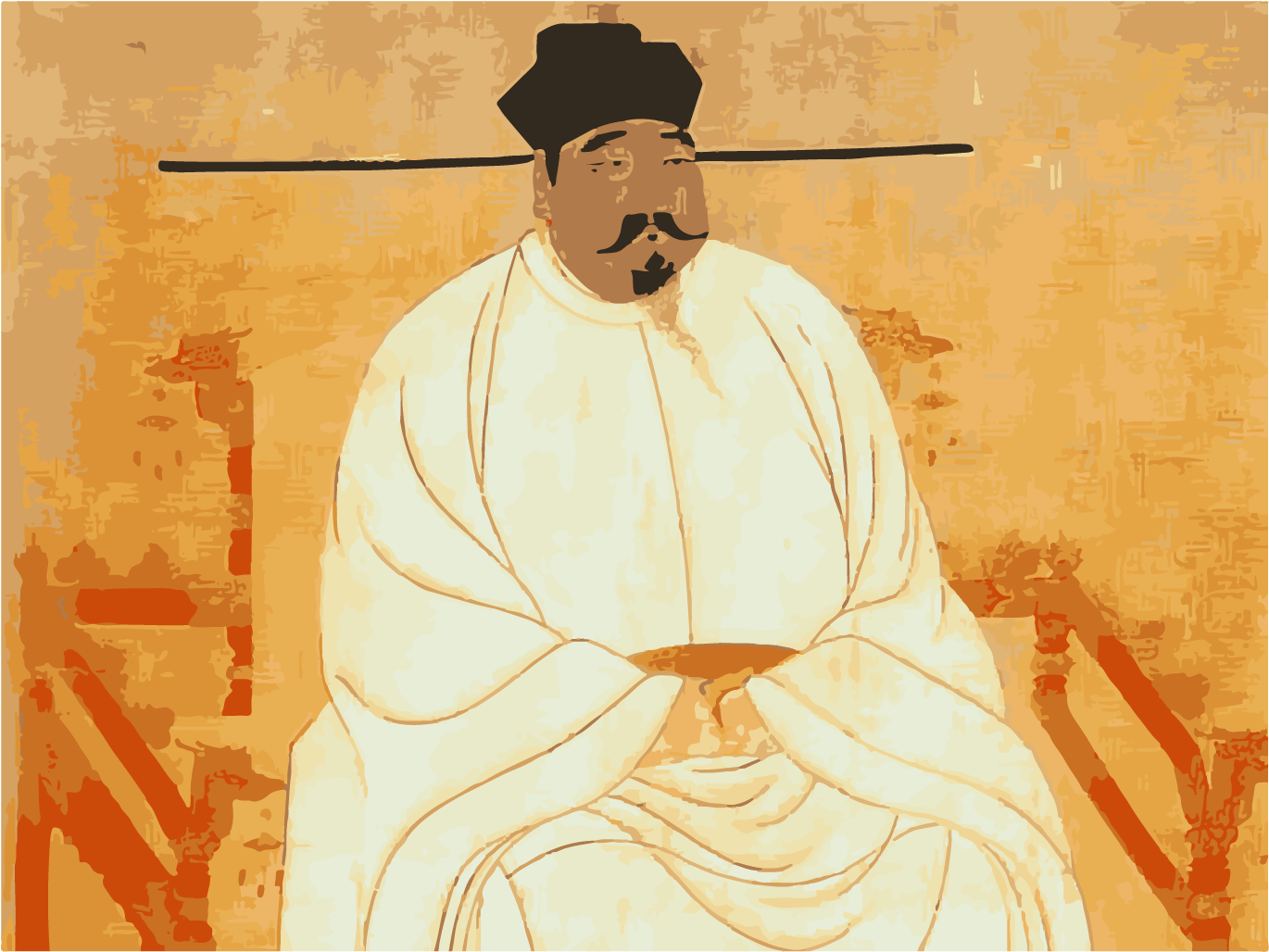
Contrast this with Zhao Kuangyin, later Emperor Taizu of the Song Dynasty in 10th-century China. For centuries, Chinese emperors fell victim to coups led by ambitious generals. Zhao broke the cycle not by killing his rivals, but by cleverly turning them into allies.
He invited his generals to a lavish banquet and made them an irresistible offer: retire in luxury, with estates and wealth, instead of living in constant fear of assassination. They agreed. In one stroke, Zhao neutralized threats and secured a dynasty that lasted over 300 years, without a drop of blood spilled.
Why Friends Are Risky, Enemies Useful
Friends are unpredictable.
Familiarity breeds entitlement, and entitlement often turns into resentment.
Friends rarely challenge you openly, but their betrayal is often sudden and devastating.
Enemies, on the other hand, are easier to manage. They have something to prove. If you turn an enemy into an ally, they’ll work harder to show loyalty than a complacent friend ever would.
How to Apply This Law Today
Be Cautious with Friends
Don’t confuse friendship with competence. Hiring or empowering friends often blurs boundaries and makes discipline difficult. Resentment festers where expectations collide.Use Enemies to Your Advantage
An enemy made into an ally is often more dependable than a friend. Their past opposition forces them to work harder to prove their loyalty. And if you have no enemies, consider creating one, opposition sharpens your focus and gives others a rallying point.Replace Loyalty with Strategy
Don’t build your plans on loyalty. Build them on incentives, structure, and control. Loyalty is fleeting, strategy lasts.
The Core Lesson
A trusted friend can betray you in a heartbeat. But a carefully managed enemy will always behave exactly as expected. If you want lasting power, never rely on friendship alone, use the predictable ambitions of enemies to secure your position.
Law 3. Conceal Your Intentions
If people can’t predict your next move, they can’t stop you. The surest way to stay in control is to keep others guessing.
Bismarck’s Masterstroke

In the 19th century, Otto von Bismarck served in the Prussian Parliament. Many politicians pushed for immediate war with Austria, convinced that Prussia was strong enough to win. But Bismarck knew two crucial things: the king opposed war, and Prussia wasn’t ready.
If he had revealed his true plan, to delay war until the moment was right, he would have faced resistance from both the king and the public. So instead, he disguised his intentions. He praised Austria, condemned war as madness, and spoke endlessly about diplomacy.
Behind the scenes, he strengthened the military. And when the time finally came, Prussia crushed Austria and unified Germany. Bismarck rose to power not because he revealed his plans, but because he concealed them until the perfect moment.
The Power of Misdirection
Most people assume words match reality. If you say you want peace, they believe you. If you show humility, they trust you. That’s why deception works so well, people rarely look deeper than appearances.
Bismarck didn’t stay silent. He created a false narrative: expressing fake goals, flooding his rivals with irrelevant details, and distracting them while he prepared his real move.
How to Conceal Your Intentions
Distract with False Desires
Don’t just stay silent, give people something to believe in. Fake goals, misleading statements, or irrelevant details make you seem open while hiding your true direction.Use Smoke Screens
A harmless appearance or an air of humility can cover deeper motives. People focus on what seems ordinary, never suspecting the hidden plan.Appear Harmless or Weak
Few strategies are as effective as being underestimated. If people dismiss you as incapable, they stop watching closely. And when they least expect it, that’s when you strike.
The Core Lesson
Control comes not from power alone, but from perception. If others think they know what you’re planning, they’ll prepare against you. But if they believe your distractions, they’ll waste time chasing illusions. Conceal your intentions, and you’ll always hold the advantage.
Law 4. Always Say Less Than Necessary
Words are powerful, but too many words weaken you. The more you say, the more likely you are to reveal something you shouldn’t, or to diminish the weight of your own message.
The Sun King’s Weapon: Silence
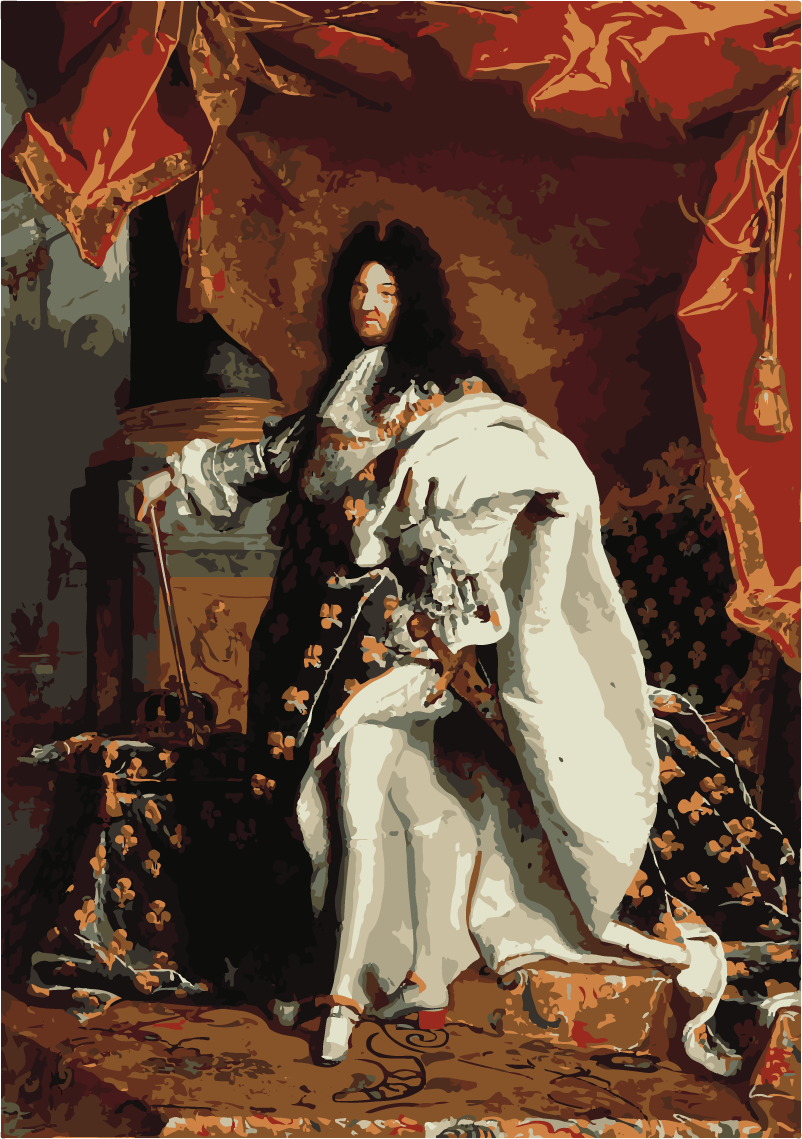
Louis XIV of France, the legendary Sun King, understood this better than anyone. He spoke sparingly, often in short, cryptic phrases that left courtiers guessing. His silence made people anxious, forcing them to interpret his intentions and reveal their own in the process.
By saying less, Louis gained more. His aura of mystery made him appear wiser, more powerful, and always in control. People hung on his every word, not because he said much, but because he said so little.
When Words Become Dangerous
History is full of cautionary tales about those who talked themselves into ruin. Take Coriolanus, the celebrated Roman general. On the battlefield, he was a hero. But when he entered politics, his arrogance and constant talking alienated allies and angered the people. The more he spoke, the more they resented him. Eventually, he was banished from Rome. His tongue, not the sword, ended his career.
How to Apply This Law Today
Use Silence as a Tool
In conversations, resist the urge to fill every pause. Silence makes others uncomfortable, and they will often reveal more than they intended just to break it.Make Your Words Count
When you do speak, choose words that are deliberate, measured, and often a little vague. This forces others to interpret them, giving your message more weight than if you explained everything.Protect Your Power
The more you talk, the more you expose your thoughts, your plans, and your weaknesses. Once words are out, they can’t be taken back. Silence, on the other hand, keeps you safe.
The Core Lesson
Silence is authority. The less you say, the more mysterious and powerful you appear. Speak too much, and you’ll look ordinary or worse, foolish. But if you master restraint, every word you utter will command attention.
Law 5. So Much Depends on Reputation – Guard It with Your Life
Before you walk into a room, before you say a word, people have already judged you. They don’t know your skills or your character, only your reputation. And once it’s stained, no amount of talent can save you.
Cesare Borgia’s Fearsome Image

In Renaissance Italy, Cesare Borgia built his power not just through armies or strategy, but through reputation. His cruelty was legendary, and he made sure everyone knew it. Rivals hesitated to move against him because they feared what he might do, often surrendering without a fight.
Borgia understood that reputation works like armor, it intimidates enemies before battle even begins and shields you from constant attacks. But he also knew that if his image ever cracked, his enemies would swarm.
Why Reputation Is Everything
It’s a shield. People think twice before crossing someone with a strong reputation.
It’s a sword. A feared or admired image can be more effective than action itself.
It spreads faster than truth. Long before anyone knows your real abilities, your reputation shapes how they see you.
But here’s the danger: a single scandal, rumor, or mistake can unravel years of careful work.
How to Build and Protect Your Reputation
Start with One Defining Trait
Build your reputation around one standout quality: honesty, generosity, brilliance, or even ruthlessness. People remember what’s simple and striking.Defend It Ruthlessly
If someone threatens your image, don’t lash out emotionally. That shows weakness. Stay calm, strategic, and, if needed, counterattack with precision.Use Reputation Offensively
Sometimes the best defense is planting seeds of doubt about your rivals. Subtle rumors can erode their image while making yours look stronger. Just don’t overdo it, pettiness damages your own reputation more than theirs.Repair Through Association
If your name is tarnished, attach yourself to respected figures or causes. J.P. Morgan, for example, improved his reputation by collecting art and linking his name to cultural prestige. Borrowed credibility can rebuild what you’ve lost.
The Core Lesson
Your reputation is your most valuable asset. Guard it as if your life depends on it, because in the game of power, it does. Build it carefully, defend it strategically, and never let anyone else control the story told about you.
Law 6. Court Attention at All Costs
Invisibility is death. If people don’t notice you, you don’t exist. Power flows to those who command attentionn and once you lose the spotlight, you lose influence.
Edison vs. Tesla
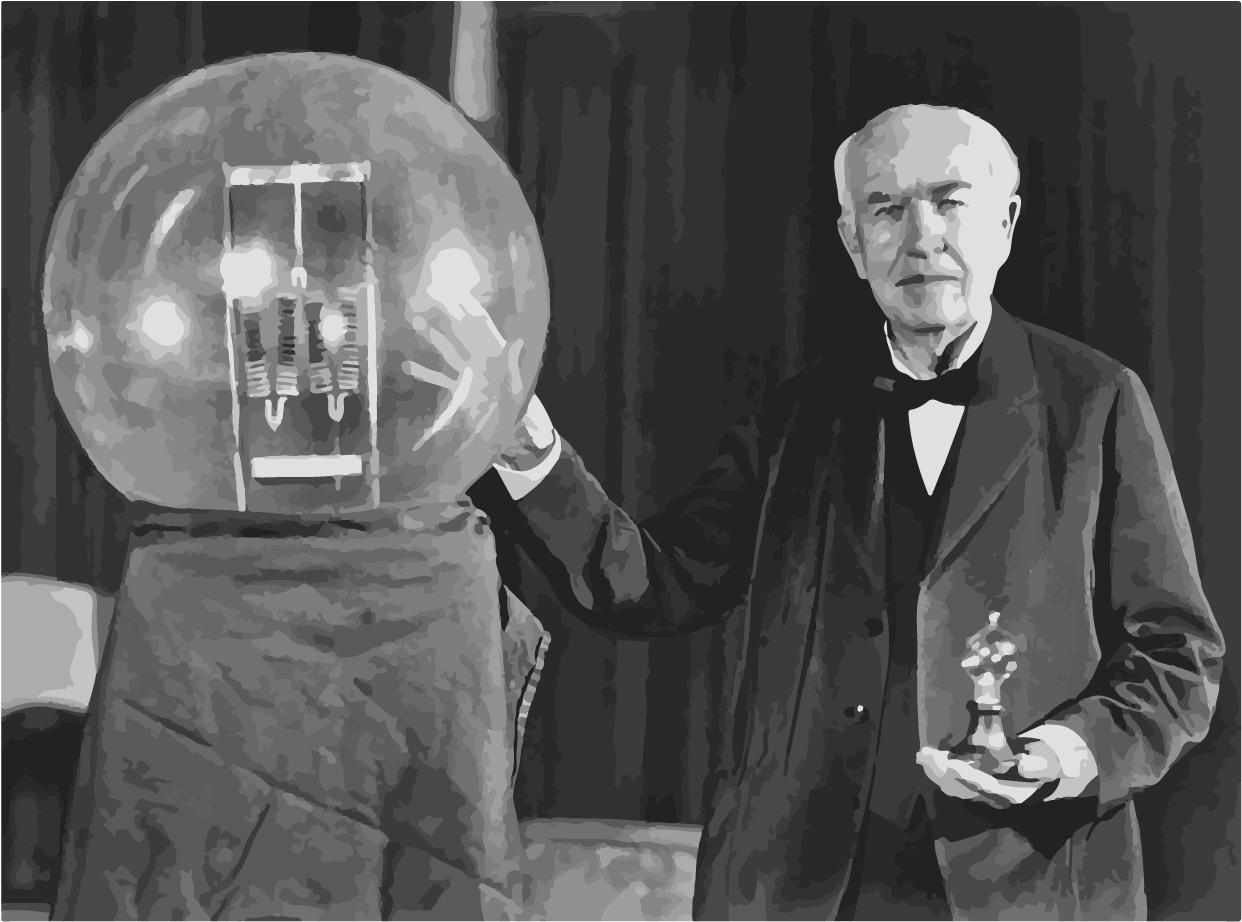
Thomas Edison understood this truth better than anyone. He wasn’t just an inventor, he was a performer. He staged public demonstrations, gave bold predictions, and constantly kept his name in the press. Even when he exaggerated or stirred controversy, people couldn’t stop talking about him.
Nikola Tesla, though equally brilliant, avoided the limelight. He preferred working quietly, letting his ideas speak for themselves. But history rarely rewards silence. Edison became a household name, while Tesla died in obscurity.
Why Attention Is Power
Visibility creates existence. If you’re not seen, you’re forgotten.
Criticism is better than obscurity. Scandal or controversy still keeps you relevant.
Mystery draws curiosity. The less people know, the more they want to know.
Edison even refused a shared Nobel Prize with Tesla because he didn’t want Tesla’s name tied to his own. For Edison, attention wasn’t a luxury, it was survival.
How to Court Attention Strategically
Attach Yourself to Spectacle
Create bold events, make daring statements, or align yourself with moments that grab headlines. People remember drama, not modesty.Reinvent Yourself
Just like celebrities who constantly refresh their image, you must evolve to stay relevant. Familiarity breeds boredom.Be Unpredictable
If people can’t anticipate your next move, they can’t ignore you. Surprise draws eyes.Turn Criticism Into Fuel
Don’t fear attacks, they only prove people are paying attention. A hated figure still has more power than a forgotten one.Appear Larger Than Life
Legends are built by exaggeration, performance, and mystery. If you act ordinary, you’ll be treated as ordinary.
The Core Lesson
Attention is the currency of power. To fade into the background is to surrender influence. Whether through spectacle, reinvention, or even controversy, you must demand the spotlight. Better to be criticized than forgotten because in the end, obscurity is the true enemy of power.
Law 7. Get Others to Do the Work for You, but Always Take the Credit
Power isn’t about doing everything yourself, it’s about positioning yourself so that others do the heavy lifting while you reap the rewards. History remembers names, not teams.
The Genius of Thomas Edison

Edison is remembered as one of the greatest inventors in history. But the truth is, many of “his” inventions were created by the team of researchers he hired at his Menlo Park laboratory. Edison’s brilliance wasn’t just in science: it was in recognizing talent, directing their efforts, and then ensuring that his name was the one attached to the final product.
As a result, while dozens of skilled minds worked behind the scenes, it was Edison’s reputation that soared. He became the symbol of invention itself.
Why This Strategy Works
Credit amplifies power. People associate success with your name, not the countless hidden hands that made it possible.
Delegation multiplies output. While others work, you’re free to focus on strategy and positioning.
Perception outweighs reality. In history, no one asks who did the small tasks: they ask who stood at the top.
How to Apply This Law Today
Find Skilled Allies
Surround yourself with people who have the expertise you lack. Their knowledge becomes your strength when you guide it effectively.Shape the Narrative
Always position yourself as the one who made the vision possible, even if others executed the details. Recognition flows to the leader, not the worker.Reward, but Don’t Over-Reward
Give your team acknowledgment privately to keep morale high, but make sure the world sees the achievement as yours. Over-crediting others weakens your own standing.Protect Your Name
If someone tries to claim the spotlight from you, act quickly. Reestablish your ownership of the idea before their version becomes the accepted story.
The Core Lesson
The world remembers the generals, not the soldiers. Let others sweat over the details while you secure the glory. Power belongs not to those who work the hardest, but to those who ensure their name is written in history.
Law 8. Make Other People Come to You – Use Bait if Necessary
A Lesson from Tokugawa Ieyasu
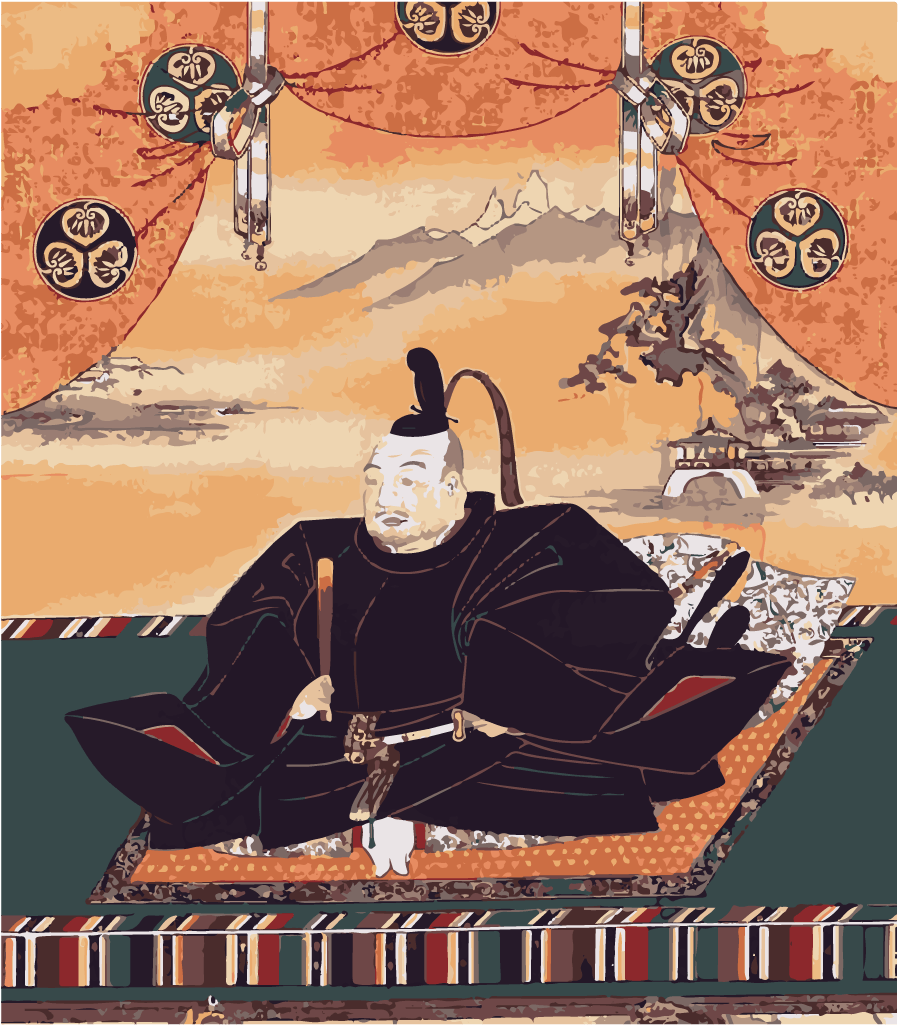
In 1600, during Japan’s greatest civil war, Tokugawa Ieyasu, a patient and cunning warlord, faced Mitsunari Ishida, a powerful enemy. But instead of striking first, Ieyasu waited.
He planted spies, spread false rumors, and bribed Ishida’s allies, turning them against their leader. Slowly, Ishida’s position crumbled from within.
When Ishida finally launched an attack, his army was already weakened by betrayal and exhaustion. Ieyasu crushed him at the Battle of Sekigahara, securing his rule over Japan.
Patience Is a Weapon

Sun Tzu once said, “The clever combatant imposes his will on the enemy, but does not allow the enemy’s will to be imposed on him.”
Powerful people don’t chase, they attract. They understand that making the first move often leads to mistakes. By waiting, observing, and luring others into action, they control the game.
Here’s how to make others come to you, on your terms:
Strategies for Drawing Others In
1. Keep Others Reacting: Never React Yourself
The moment you react, you lose control. Instead of chasing opportunities or enemies, set the stage and force them to play by your rules.
Create temptation: an offer they can’t refuse.
Make them think they’re in control, until they’ve walked right into your trap.
Stay calm, when they move out of desperation, you strike with precision.
2. Bait Your Enemy: Then Strike
People act out of greed, ego, or fear, learn to exploit this.
Greedy people? Dangle wealth.
Arrogant people? Challenge their pride.
Fearful people? Threaten their security.
3. Control the Battlefield
If you fight on someone else’s terms, you lose. Always maneuver the battle onto your ground.
Choose the setting: let them come to your arena.
Control the timing: strike when they’re vulnerable.
Make them feel safe: then take it all away.
4. Exploit Your Opponent’s Weakness
Everyone has a flaw, find it and press on it.
Impatient people rush into traps.
Prideful people refuse to back down.
Desperate people make mistakes.
The most powerful leaders don’t fight battles head-on. They manipulate emotions, create illusions, and make others destroy themselves.
5. Master Your Emotions: Never Act Out of Anger
Aggression feels powerful, but it makes you predictable. If you let rage control you, you’re playing into someone else’s hands.
The calmest person in the room holds the most power.
Patience forces others to make mistakes first.
Emotional people are easily manipulated.
The Core Lesson
Powerful leaders don’t chase, they lure. By baiting opponents, controlling the ground, and waiting patiently, they make others destroy themselves. The calmest player holds the most control.
Law 9. Win Through Your Actions, Never Through Argument
A Lesson from Galileo Galilei

In the 17th century, the Catholic Church insisted that the Earth was the center of the universe. Challenging this belief meant risking persecution. Many tried to argue against the Church and failed.
But Galileo Galilei played a smarter game. Instead of debating, he built telescopes and invited powerful figures to see the evidence for themselves, Jupiter’s moons orbiting their planet, Venus going through phases like the Moon. He didn’t argue. He demonstrated.
Once people saw the truth, they couldn’t unsee it. Galileo understood that people are more convinced by what they experience than by what they’re told.
Why Arguments Are a Trap
Winning an argument might feel satisfying in the moment, but the victory is an illusion.
You might “win” the debate, but you stir up resentment.
You wound pride and ego, creating silent enemies.
Minds rarely change through words alone.
As Baltasar Gracián put it: “The truth is generally seen, rarely heard.”
Instead of proving a point, prove results. Actions persuade words don’t.
When to Argue (and How to Win Without Fighting)
There are moments when an argument can be useful but not to prove you’re right. Instead, use it strategically to confuse, distract, or control the situation.
Take Victor Lustig, the infamous con artist. He once sold a fake money-printing box for $10,000. When the buyer realized he’d been scammed, he came back furious.
Now, Lustig could have argued or defended himself. But that would have made him look guilty. Instead, he played dumb, pretending shock that the machine wasn’t working and even blaming the buyer for misusing it. Finally, he offered to return the money, knowing full well he had already won the psychological battle.
Three Ways to Win an Argument Without Fighting
Feign Ignorance: Act confused to shift the burden back onto your opponent.
Overwhelm with Details: Use technical jargon or excessive information to make them doubt themselves.
Offer a Fake Solution: Give them the illusion of victory, even while you keep the real win.
The Core Lesson
Arguments create resentment; actions create proof. If you want lasting influence, don’t waste time trying to win debates. Show results, demonstrate outcomes, and let your success speak louder than words.
Law 10. Infection: Avoid the Unhappy and Unlucky
Emotions are contagious. Spend too much time around the miserable, and their misfortune will become your own. Power demands that you protect yourself from the negativity of others.
Lola Montez’s Poisonous Charm

In the 1840s, Lola Montez was a fiery dancer and courtesan who captivated powerful men across Europe. She was beautiful, passionate and utterly destructive. Her lovers were drawn in by her charm, but she left chaos wherever she went.
King Ludwig I of Bavaria was so infatuated with her that he made her a countess. But her scandalous behavior and constant drama ruined his reputation, triggered public unrest, and eventually forced him to abdicate the throne.
Those who attached themselves to Lola Montez didn’t just suffer heartbreak: they lost power, fortune, and even crowns.
Why Negativity Spreads
Misery looks for company. The unhappy often seek to pull others into their chaos.
Bad luck rubs off. Associating with failure links you to it, whether or not you deserve it.
Energy is contagious. Emotions spread invisibly. Spend enough time around anger, bitterness, or despair, and it becomes your own.
How to Apply This Law Today
Choose Associations Wisely
Surround yourself with people who are successful, optimistic, and resilient. Their energy lifts you instead of dragging you down.Recognize the Carriers
Some people always have drama, always bring bad news, and always blame others. Distance yourself before their problems become yours.Protect Your Mood Like Treasure
Your state of mind shapes your decisions. Guard it from those who would infect it with doubt, negativity, or fear.Don’t Try to Save Everyone
Helping someone who is drowning in their own misery often means drowning with them. Sometimes the most powerful move is to walk away.
The Core Lesson
Unhappiness and misfortune spread like a disease. Protect yourself by avoiding those who carry it. Seek out the strong, the happy, and the lucky, and their energy will propel you upward instead of dragging you down.
Part 2: Laws on Social Dynamics and Relationships
Law 11. Learn to Keep People Dependent on You
If others can live without you, your power is limited. But if they depend on you (financially, emotionally, or strategically) you hold the strings. The more indispensable you become, the harder it is for anyone to challenge or abandon you.
The Puppet Master Richelieu

Cardinal Richelieu, the powerful minister of France in the 17th century, mastered this law. He ensured that both King Louis XIII and the French nobility relied on him completely. To the king, Richelieu was the brilliant mind who handled the messy details of governance. To the nobles, he was the gatekeeper of favor, wealth, and survival.
By making himself the central piece of France’s political machinery, Richelieu became untouchable. Removing him would have meant chaos and everyone knew it. His enemies despised him, but they couldn’t move against him because he was too necessary.
Why Dependence Builds Power
It reduces threats. If someone needs you, they won’t risk undermining you.
It creates loyalty by necessity. True loyalty is rare, but dependence forces it.
It gives leverage. The more people rely on your skills or resources, the more you dictate the terms.
How to Apply This Law Today
Specialize in Something Irreplaceable
Develop a unique skill, knowledge, or access that others can’t easily find elsewhere. Your rarity makes you valuable.Control Resources
Money, networks, or information are powerful levers. If you manage them, others must stay close to you to survive.Balance Generosity with Control
Give enough to keep people invested, but never so much that they can stand alone. Always leave them needing just a little more from you.Beware of Reversals
If you make someone too dependent, they may resent you and lash out when they see an escape. Keep dependence subtle so they don’t feel trapped.
The Core Lesson
Power comes not from being liked, but from being needed. When people rely on you for survival, success, or identity, you hold leverage they cannot ignore. Become indispensable, and you secure your position.
Law 12. Use Selective Honesty and Generosity to Disarm Your Victim
A Lesson from the Trojan Horse

For ten years, the Greeks failed to conquer Troy. The city’s massive walls and skilled warriors made it impenetrable. Every attack was repelled. Every strategy failed.
But instead of brute force, the Greeks turned to deception. One day, they vanished, their ships gone, their camps abandoned. In their place stood a massive wooden horse, left as a supposed gift to the gods.
Some warned it was a trap. But blinded by pride, the Trojans believed it was an offering of surrender. They dragged it inside their walls, celebrating their “victory.”
That night, Greek warriors hidden inside the horse crept out and opened the city gates. The Greek army (waiting nearby) stormed in, destroying the city in hours.
Troy, which had withstood a decade of war, fell not by force, but by a well-placed act of apparent generosity.
The Power of Selective Honesty
People are naturally suspicious, always on guard for deception. But ironically, this makes a well-placed act of honesty even more powerful. When someone appears sincere, especially when it’s unexpected, it catches others off guard.
This is the principle of Selective Honesty: gain trust early, and people will overlook or rationalize the deception that follows.
7 Ways to Make Honesty Your Ultimate Weapon
Appear Honest at the Right Moment
A well-timed display of sincerity makes people drop their defenses. Even if you’ve been dishonest before, one act of apparent honesty can erase doubts.Give Before You Take
People expect hidden motives. A gift, whether a favor, an apology, or a confession, softens defenses and makes them more likely to trust you later.First Impressions Matter
If you establish yourself as trustworthy from the start, people will cling to that belief, even when evidence suggests otherwise.Build a Reputation for Honesty
The more consistently honest you appear, the easier it is to deceive when necessary. People rarely question those with a clean track record.A Gift Is the Perfect Distraction
Gifts trigger gratitude, which blinds people to ulterior motives. Leaders have used lavish gestures for centuries to disguise their real power plays.Be Careful, It Must Feel Genuine
False sincerity is dangerous. If someone sees through your act, their disappointment will turn into hatred. A poorly executed attempt at selective honesty will destroy trust forever.When Deception Is Expected, Own It
If you already have a reputation for dishonesty, suddenly acting generous or sincere will only raise suspicion. In that case, embrace your rogue nature. Sometimes people admire honesty in dishonesty more than a forced attempt at virtue.
The Core Lesson
Selective honesty is one of the most disarming weapons in power. A single sincere gesture or well-timed gift can lower defenses built over years. But it must feel genuine: done poorly, it backfires. Done well, it gives you trust, access, and control.
Law 13. When Asking for Help, Appeal to People’s Self-Interest, Never to their Mercy
A Lesson from Christopher Columbus

Christopher Columbus had a dream to find a western sea route to Asia. But there was a problem: no one wanted to fund it.
For years, European rulers rejected his plan, calling it too risky, too expensive, and too unrealistic. But Columbus refused to give up. When he set his sights on Queen Isabella and King Ferdinand of Spain, he changed his approach.
Instead of talking about exploration, he appealed to their self-interest. He promised that a new route would make Spain richer than Portugal and expand their empire with gold and spices.
The promise of wealth and power was too tempting to ignore. Isabella agreed to fund the voyage, not for Columbus, but because she saw an opportunity to make Spain the most powerful empire on Earth.
And so, in 1492, Columbus set sail.
How to Ask for Help the Right Way
When you need something, don’t expect people to help out of kindness, morality, or gratitude. That’s not how human nature works.
Most people are too absorbed in their own needs to feel obligated to return a favor. If you want a “yes,” don’t ask them to care about your problem, show them how saying yes solves theirs.
People aren’t moved by generosity, they’re moved by self-interest.
When Making Your Appeal
Don’t Bring Up the Past
Just because someone owes you one doesn’t mean they’ll pay you back. In fact, people often resent feeling obligated. Instead of guilt-tripping them, make it clear why helping you serves their interests today.Don’t Assume People Care About Your Problems
Your struggles might feel huge to you—but to others, they’re just background noise. If your appeal is based on emotion, morality, or sympathy, people will ignore you. Instead, shift the focus: how does helping you make their life easier, better, or more profitable?Show How You Can Solve Their Problems
People help when they see you as useful. But if they see you as a burden, they’ll avoid you. Before you ask for anything, put yourself in their shoes: what do they get out of this? If they’re motivated by profit, show them how helping you increases their wealth, influence, or status.-
Appeal to the Ego
Some people do enjoy giving but not out of kindness. They do it for status, admiration, and superiority. These are the people who love public acts of generosity. The more public, the better.If you need their help, stroke their ego. They’ll be eager to fund your project or introduce you to powerful people as long as the world is watching.
The Core Lesson
People rarely help out of gratitude or compassion. If you want real results, appeal to what drives them: wealth, influence, security, or ego. Show how helping you benefits them, and you’ll get the yes you’re looking for.
Law 14. Pose as a Friend, Work as a Spy
A Lesson from Catherine de Medici

Catherine de Medici, the powerful Queen of France, always knew what was happening before anyone else did. But she didn’t rely on rumors, she built a secret network of spies.
Her most effective spies were servants, maids, cooks, valets, people who blended into the background, overhearing whispers, reading discarded letters, and reporting everything back to her.
She used this information to manipulate the court, crush her enemies, and control the throne.
When nobles plotted against her, she knew before they could act.
When alliances shifted, she adjusted her strategy instantly.
Information gave her power, and she never let it slip from her hands.
The Art of Spying Without Getting Caught
Knowledge is power. The more you know, the more control you have. But the best spies don’t rely on hired informants alone, they gather information themselves, without anyone realizing it.
The trick? Pose as a friend.
People lower their guard when they believe you genuinely like them. They talk freely, exposing secrets, plans, and weaknesses, without even realizing it. And once you have that information? You hold the upper hand.
How to Spy Effectively
Let Others Do the Talking
People love talking about themselves. Stay quiet, ask the right questions, and they’ll reveal everything, thinking you’re just a great listener.Control Your Own Words
The more you talk, the more you reveal. Great spies listen more and speak less.Use Social Settings to Your Advantage
People drop their guard at parties, dinners, and casual meetups. Observe interactions who trusts who, who’s hiding something, who looks nervous. Information is everywhere if you pay attention.Trigger Emotional Reactions
Subtly challenge someone to uncover hidden motives. When people get emotional, they stop thinking clearly and reveal more than they should.The “False Confession” Trick
If you want someone to open up, share a secret of your own, real or fake. People instinctively reciprocate, revealing their own secrets in return. This also tests their character: will they keep your secret, or run their mouth?Spread False Information
Just as others might spy on you, stay ahead by feeding disinformation. Mislead rivals, make them waste time, and force mistakes.
The Risks of Spying (and How to Avoid Them)
Spying is powerful, but it comes with risks. If people suspect you, they’ll shut you out, or worse, turn against you.
Don’t ask too many direct questions, it makes people suspicious.
Don’t spy too aggressively, obvious curiosity raises alarms.
Don’t forget you might be spied on, too, always protect your own secrets.
The Core Lesson
Spying isn’t about skulking in the shadows, it’s about making people trust you enough to reveal themselves. Pose as a friend, listen carefully, and gather knowledge quietly. Information is the lifeblood of power, but only if you know how to obtain it without being caught.
Law 15. Crush Your Enemy Totally
The Roman Lesson

Carthage once stood as Rome’s greatest rival, dominating trade across the Mediterranean. Twice Rome had defeated them, yet the city remained a threat, waiting, rebuilding, watching. The Romans knew the truth: if Carthage was left standing, it would rise again.
So in 149 BCE, Rome launched the Third Punic War. Led by Scipio Aemilianus, their mission was not victory, it was extermination. After years of siege, the Romans breached the city walls. No mercy was shown. Carthage was burned, its people enslaved, and the city wiped from the map. A centuries-long rivalry ended in one final, decisive act.
The Brutal Reality of Enemies
Enemies rarely vanish on their own. They retreat, they wait, and when the timing is right, they strike again. That’s why when you move against an enemy, you cannot stop halfway. Mercy, compromise, or hesitation only leaves the door open for revenge.
But “crushing” doesn’t always mean physical destruction. It means stripping your enemy of the power, resources, or influence that could allow them to threaten you again.
How to Crush an Enemy Effectively
Never Show Sympathy
Mercy feels noble, but enemies see it as weakness. If you let them recover, they will return, stronger and more determined.Don’t Leave Space for Negotiation
A cornered enemy with hope is the most dangerous kind. If you cannot destroy them, cut them off entirely. No deals, no second chances.Be Wary of Former Friends Turned Foes
Ex-friends make the deadliest enemies. They know your weaknesses, your secrets, and your blind spots. Leaving them alive is like nursing a wounded snake, it will bite you when it heals.Let Them Collapse on Their Own
Sometimes outright destruction creates martyrs. The smarter strategy is to strip your enemy of influence, allies, and hope until they crumble under the weight of their own humiliation. A powerless enemy destroys themselves without you lifting a finger.
The Core Lesson
Half measures are fatal. An enemy allowed to survive, even weakened, remains a seed of future danger. If you strike, strike in a way that leaves no possibility of resurgence. Total victory may seem cruel, but anything less invites endless conflict.
Law 16. Use Absence to Increase Respect and Honor
The Napoleon Effect

Napoleon Bonaparte wasn’t just a master on the battlefield, he was a master of perception. After his Egyptian campaign in 1799, he returned to France but didn’t rush to bask in the spotlight. Instead, he disappeared.
Whispers spread. Where was Napoleon? What was he planning? The mystery magnified his aura. By the time he returned with a dramatic coup d’état, the public had built him up in their imagination. He wasn’t just a general anymore, he was a savior. His absence made his presence overwhelming.
Why Absence Creates Power
Anything constantly available is undervalued. Scarcity, on the other hand, creates desire. Diamonds are treasured not because they are useful, but because they are rare.
The same rule applies to people. If you’re always present, always available, you become ordinary, background noise. But when you withdraw at the right time, your absence speaks louder than your presence. It creates curiosity, longing, and respect.
How to Use Absence Strategically
First, Establish Yourself
Absence only works once you’ve made an impression. If you vanish too soon, people won’t crave your return, they’ll simply forget you.Leave Before You’re Pushed Away
Overexposure breeds familiarity, and familiarity breeds boredom. Withdraw while people still want more.Let Absence Create Demand
When you’re gone, people will notice the void. They’ll think about you, talk about you, even idealize you.Return with Impact
Come back at the right moment, and your reappearance feels like a resurrection. The gap magnifies your importance, making you seem larger than life.
The Core Lesson
Presence loses power when it’s constant. To be valued, you must be missed. Strategic absence turns you into a symbol, a figure of fascination. By stepping back, you don’t weaken your influence—you multiply it.
Law 17. Keep Others in Suspended Terror: Cultivate an Air of Unpredictability
The Nixon Example

In the 1970s, Richard Nixon faced a difficult problem: how to exit the Vietnam War without looking weak. His solution was the “Madman Theory.” Nixon wanted his enemies to believe he was capable of anything, even nuclear war.
He fueled rumors, hinted at escalation, and in 1972 ordered massive bombings in North Vietnam while letting the Soviets think peace talks could collapse at any moment. By appearing reckless and unpredictable, Nixon forced his opponents to hesitate. That hesitation gave him leverage.
Why Predictability Kills Power
People crave certainty. They study patterns, cling to routines, and try to make your behavior predictable. Once they succeed, they can anticipate and counter everything you do.
But unpredictability flips the script. It keeps others off balance. When no one knows what you’ll do next, they become nervous, waste energy second-guessing you, and eventually make mistakes. In the chaos, you control the game.
How to Master Unpredictability
Break Your Patterns
Routines make you predictable. Switch strategies, change tactics, and make sure no one ever feels they fully know you.Strike Without Warning
Surprise is one of the most powerful weapons. Act suddenly, and your opponents freeze before they can react.Keep Them Off Balance
Confusion weakens. The more people scramble to anticipate your next move, the less effective they become.Use Predictability as a Trap
Sometimes, act consistent on purpose. Once people relax and believe they’ve figured you out, shatter the pattern and catch them off guard.
The Core Lesson
Predictability hands control to others. Unpredictability keeps the power in your hands. When people live in suspense, they can’t prepare, they can’t relax and they can’t stop watching your next move.
Law 18. Do Not Build Fortresses to Protect Yourself Isolation Is Dangerous
The Emperor’s Mistake
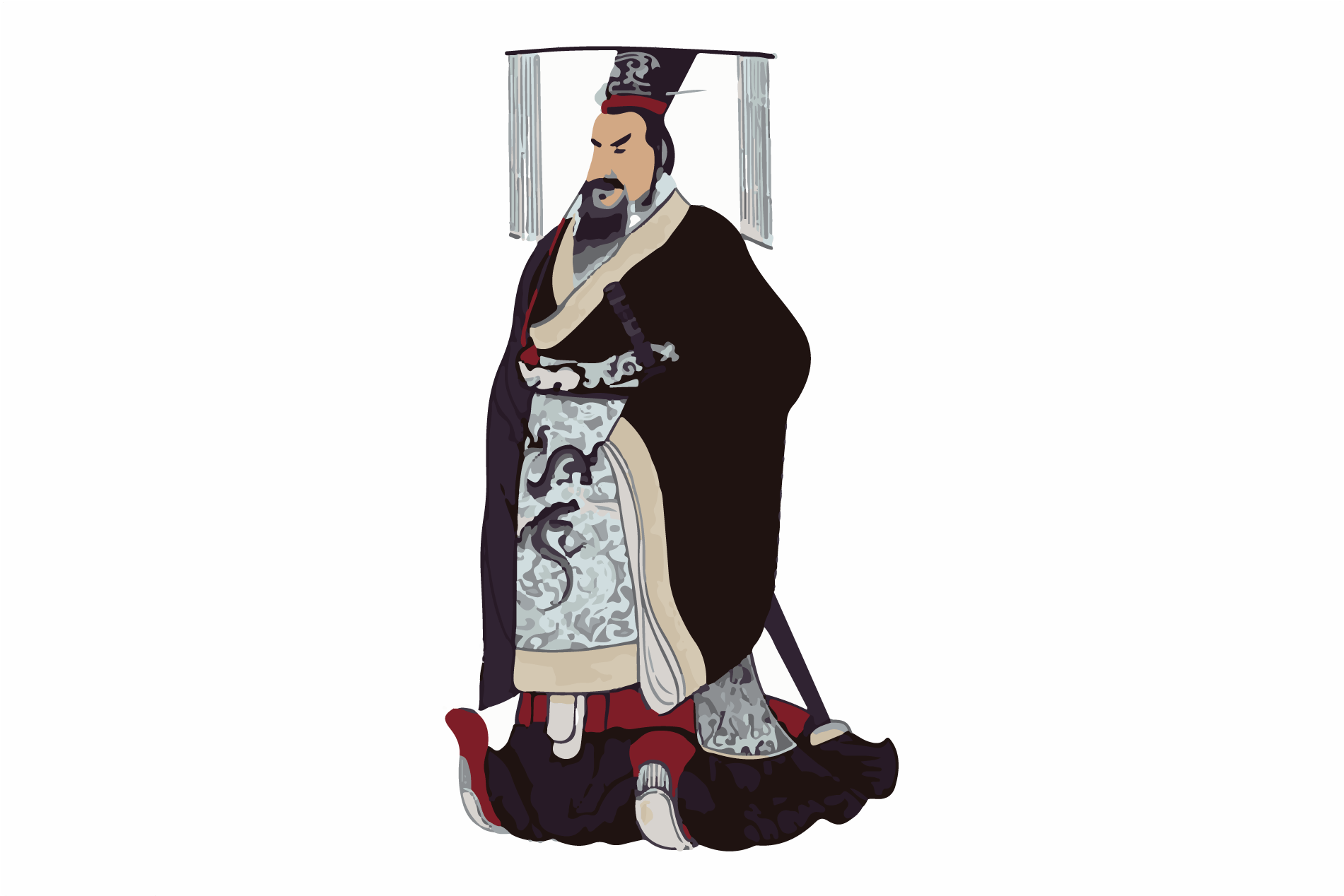
Qin Shi Huang, the first emperor of a unified China, wielded immense power. He built the Great Wall, centralized his empire, and reshaped history. But his fatal flaw was paranoia.
As his fear of betrayal grew, he began to distrust everyone: his ministers, his generals, even his own family. To protect himself, he withdrew. He built an enormous palace and sealed himself away from the outside world.
But isolation didn’t protect him, it doomed him. Cut off from reality, Qin Shi Huang had no sense of the resentment building beyond his walls. The fortress he built to ensure his survival became his prison, and his dynasty collapsed shortly after his death.
The Dangers of Isolation
Security feels safe, but walls eventually work against you. Withdraw too much, and you don’t become stronger, you become blind and vulnerable.
You lose access to power. Influence, opportunity, and information all flow through people. Cut yourself off, and you cut off your lifeline.
You lose awareness of threats. The world moves on without you. Isolated, you’re the last to know about dangers forming against you.
You lose perspective. Alone, small issues feel massive, while real threats go unnoticed.
You become trapped. The longer you withdraw, the harder it becomes to re-enter society. Your options shrink until you have none.
You become an easy target. Stillness is predictable. Enemies know exactly where to find you—and how to strike.
The Alternative: Stay at the Center
If isolation breeds weakness, the opposite approach builds power.
Louis XIV understood this better than anyone. Instead of retreating, he put himself at the center of everything. His palace at Versailles wasn’t a fortress of solitude—it was a stage where nobility circled around him, their every move visible. By keeping himself connected, involved, and present, he ruled unchallenged for over 50 years.
How to Stay Connected to Power
Be where the action is. Stay active in conversations, networks, and decisions. Keep your ear to the ground.
Expand your circle. Don’t rely on a handful of voices. A broad network gives you perspective and security.
Balance awareness with trust. Avoid paranoia, but don’t be blind. Stay close enough to sense threats before they grow.
Keep moving. Just like in war, a moving target is harder to hit. Shift environments, mix with different groups, and keep opponents uncertain.
The Core Lesson
Fortresses don’t protect power, they destroy it. True strength comes from presence, awareness, and connection. To withdraw is to weaken. To stay visible and engaged is to survive.
Law 19. Know Who You’re Dealing With – Do Not Offend the Wrong Person
The Stalin Lesson

After Lenin’s death, two key figures shaped Soviet politics: Joseph Stalin and Nikolai Bukharin. At first, Bukharin supported Stalin’s rise, believing he could control him. But Stalin saw further ahead. He recognized Bukharin as a future threat and when the moment was right, he turned on him.
In 1936, Stalin accused Bukharin of treason. Two years later, after a staged trial, Bukharin was executed. A man who once stood beside the dictator had underestimated the danger of offending him.
The Risk of Misjudgment
Not everyone responds to offense the same way. Some people forget. Others forgive. But a select few will carry a grudge for life and strike back when you least expect it. The key is knowing who you’re dealing with before you cross them.
Five Dangerous Types You Should Never Offend
The Arrogant and Proud
Charming on the surface but fragile underneath. The smallest insult feels like an attack, and revenge will be obsessive and extreme. If someone is boastful or quick to take offense, keep your distance.The Hopelessly Insecure
He won’t explode. He’ll simmer. This type undermines slowly: holding grudges, spreading doubt, and draining you over time. By the time you notice, the damage is done.Mr. Suspicion
He sees enemies everywhere, even where none exist. If he turns that paranoia on you, no explanation will save you. He will plot endlessly, convinced of your betrayal.The Patient Serpent
He never forgets. He won’t lash out immediately, but he will wait (smiling, pretending all is well) until years later, when he strikes cold and calculated. If you’ve offended him, either crush him completely or disappear.The Plain and Unintelligent
This one doesn’t seek revenge, but he can ruin you through incompetence. He doesn’t understand the game, and in trying to involve him, you’ll waste energy and risk disaster. Test him with humor: if he takes everything literally, don’t expect him to play your game.
Five Rules for Avoiding the Wrong Enemy
Don’t trust instinct alone. Study people’s actions, habits, and reactions before making moves.
Look past appearances. A friendly face can hide vengeance; a loud voice may mask weakness.
Reject with care. Today’s powerless person may be tomorrow’s rival. Small insults can create lifelong vendettas.
Test before offending. A confident person laughs off a joke; an insecure one turns it into a wound.
Don’t insult without reason. Enemies are costly. If you don’t need one, don’t create one.
The Core Lesson
Power isn’t just about what you do, it’s about who you do it to. Offend the wrong person, and no strategy will save you. Choose your battles wisely, because some enemies never forgive and never forget.
Law 20. Do Not Commit to Anyone
The Elizabeth Strategy

Queen Elizabeth I ruled England in one of its most volatile eras, surrounded by political intrigue, foreign threats, and endless pressure to marry. In her time, marriage wasn’t just personal, it was political. Every royal union shaped alliances, wars, and power balances.
Yet Elizabeth never married. Instead, she turned her unmarried status into her greatest weapon. France, Spain, and other European powers courted her for decades. Each proposal became a bargaining chip. She used their hopes to negotiate peace, build alliances, and keep rivals competing against each other. By never committing, she held onto her independence and England’s strength.
Why Commitment Weakens Power
The moment you tie yourself down, you lose freedom. Predictability makes you vulnerable. If people know where you stand, they can counter, control, or trap you. But if they’re left uncertain, they must chase, adapt, and react. And that gives you the advantage.
How to Avoid Commitment Without Losing Power
Be Desired by All, Possessed by None
If people think they own you, they stop valuing you. But when you stay just out of reach, desire intensifies. Attention grows when others see that everyone wants you. The spell breaks only when you commit.Grow More Valuable Through Scarcity
The less available you are, the more others respect and admire you. Encourage hopes without ever fully yielding. Independence creates allure and the more untouchable you appear, the more people chase.Stay Above Conflicts
The moment you take sides, you inherit enemies. Remain neutral, let others exhaust themselves in battles, and step in later as the wise mediator. Influence is greatest when you’re not trapped in the fight.Don’t Be Trapped by Emotions
Attachment is a chain. Once you tie yourself to someone’s problems, you carry their burdens. Show concern, but stay detached. People will try to bind you with guilt, favors, or loyalty—but their struggles aren’t yours. Protect your time, energy, and independence.
But beware, too much detachment can backfire. If you make people wait forever, admiration turns into resentment. If you play too many sides, they may unite against you. Sometimes, temporary alliances are useful. The key is flexibility: commit only when it benefits you, and always keep an escape route.
The Core Lesson
To commit is to give away control. To remain unattached is to remain free. Master the balance, let people desire you, depend on you, and fight for you, but never give yourself away completely. Independence is power.
Part 3: Laws on Strategic Maneuvers and Tactics
Law 21. Play a Sucker to Catch a Sucker – Seem Dumber Than Your Mark
The Bismarck Trick
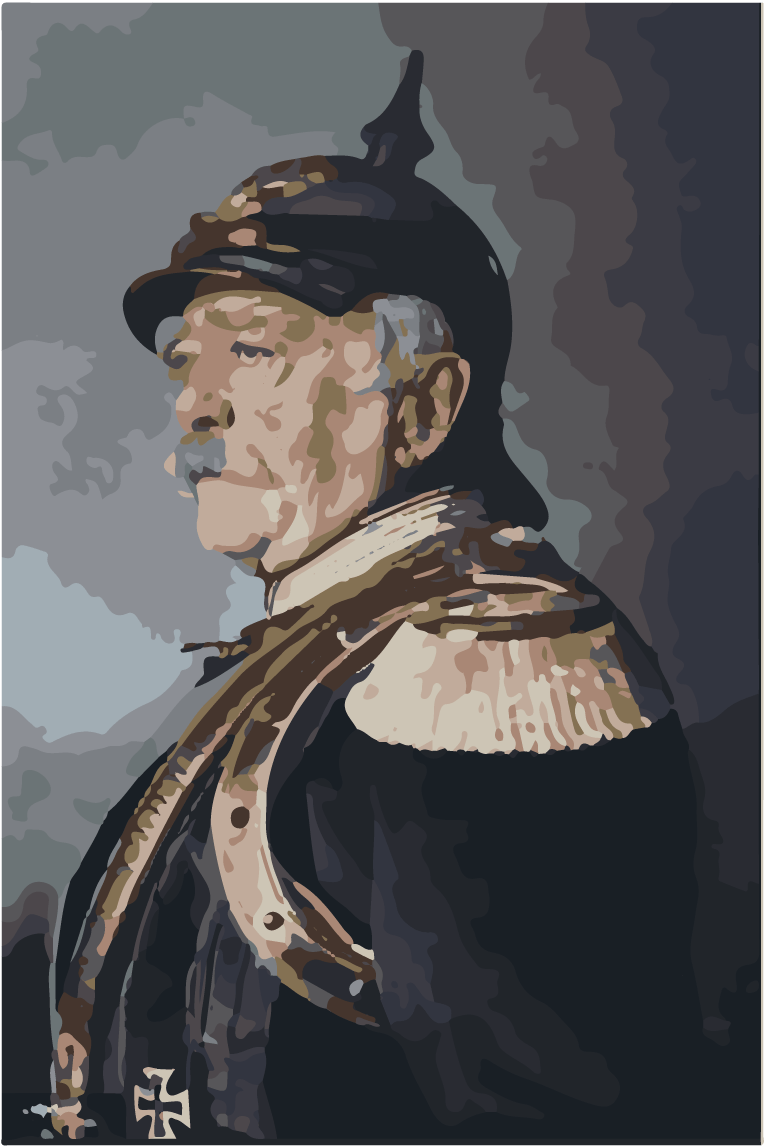
Otto von Bismarck, the German statesman, mastered the art of deception through humility. In meetings, he often acted clumsy, rambled, or even pretended to be drunk. His rivals dismissed him as harmless, someone too foolish to pose a threat.
But Bismarck was anything but a fool. Behind the mask, he calculated every move. In 1866, he provoked Austria into a war they thought would be an easy win. Overconfident, they fell into his trap and suffered a crushing defeat.
The Power of Playing Dumb
Nobody likes feeling outsmarted. If you make people feel inferior, they’ll resent you. But if you let them believe they’re smarter than you, they’ll relax, underestimate you, and reveal far more than they should.
Power doesn’t come from proving you’re the sharpest mind in the room. It comes from letting others think they are, while you quietly stay in control.
Why Appearing Weaker Works
People lower their guard.
They reveal information they’d normally hide.
They underestimate your ambition.
They trust you more because you make them feel good about themselves.
Meanwhile, while they bask in their own superiority, you’re watching, learning, and preparing your strike.
How to Seem Dumber Than You Are
Never Challenge Intelligence Directly
Avoid making others feel outshined. Instead, reassure them of their brilliance.Use Self-Deprecation
Act unsure, make harmless mistakes, and let others “teach” you. Feeding their ego keeps you underestimated.Ask Simple Questions
Even obvious ones. It flatters their intelligence and often prompts them to reveal too much.Play the Harmless Fool
Fools don’t spark competition, they’re tolerated and trusted. That’s your cover.Stay Underestimated
If they think you’re incapable of deception, they’ll never anticipate your moves.
When to Reveal Your Intelligence
Appearing foolish works most of the time, but there are moments when dropping the mask is necessary:
To gain credibility and authority.
To escape danger by proving competence.
Early in your rise, to show you’re capable, just not threatening.
The Core Lesson
The smartest player isn’t the one who shows off brilliance, it’s the one who hides it. By playing the sucker, you control the stage, gather secrets, and strike when your opponent least expects it.
Law 22. Use the Surrender Tactic: Transform Weakness into Power
The Mao Example

When Mao Zedong faced near defeat against Chiang Kai-shek’s Nationalists, he did not cling to honor. In 1934, Mao ordered a strategic withdrawal now known as the Long March. He preserved his forces, forged alliances, and lived to fight another day. While the Nationalists exhausted themselves chasing him, Mao’s movement recovered and grew. By 1949, he stood victorious and founded the People’s Republic of China. What looked like retreat was actually preparation for triumph.
Why Surrender Is a Weapon
Surrender is not about giving up. It is a tactical choice. When you are outmatched, clinging to a hopeless fight only drains resources and invites total defeat. Surrender buys time. Time to recover, learn, and reposition. It disguises your aims and lulls your enemy into complacency. When the moment is right, you strike back from a place of strength.
Why It Works
Fighting when you are weak wastes everything. Pride never wins a lost cause.
No one risks their position for a doomed ally. Abandoning a fight can preserve your people and options.
Resistance can invite annihilation. Submission can be survival.
Martyrdom removes you from the game. You cannot win if you are dead.
Surrender buys time to regroup and train.
It makes the enemy careless. They stop preparing for you.
It hides your ambition while you prepare a comeback.
When the enemy is weakest, that is the best time to strike.
How to Use Surrender Smartly
Pick your retreat. Withdraw with purpose, not panic. Protect what matters.
Preserve your forces. Keep your leadership, resources, and morale intact.
Observe and learn. Use the lull to study the enemy’s mistakes and alliances.
Infiltrate when possible. Use proximity to gather intelligence or win allies.
Plan the return. Surrender without a comeback plan is capitulation.
A Caution
Surrender only works if it leads to a renewed chance. If your enemy never relaxes or you lose your base, retreat becomes defeat. And sometimes, martyrdom is the only way to inspire others. Know the difference.
The Core Lesson
When you are weak, fight cleverly, not proudly. Retreat is a tool. Used well, it preserves strength, creates opportunity, and turns apparent defeat into future power.
Law 23. Concentrate Your Forces
The Rockefeller Method
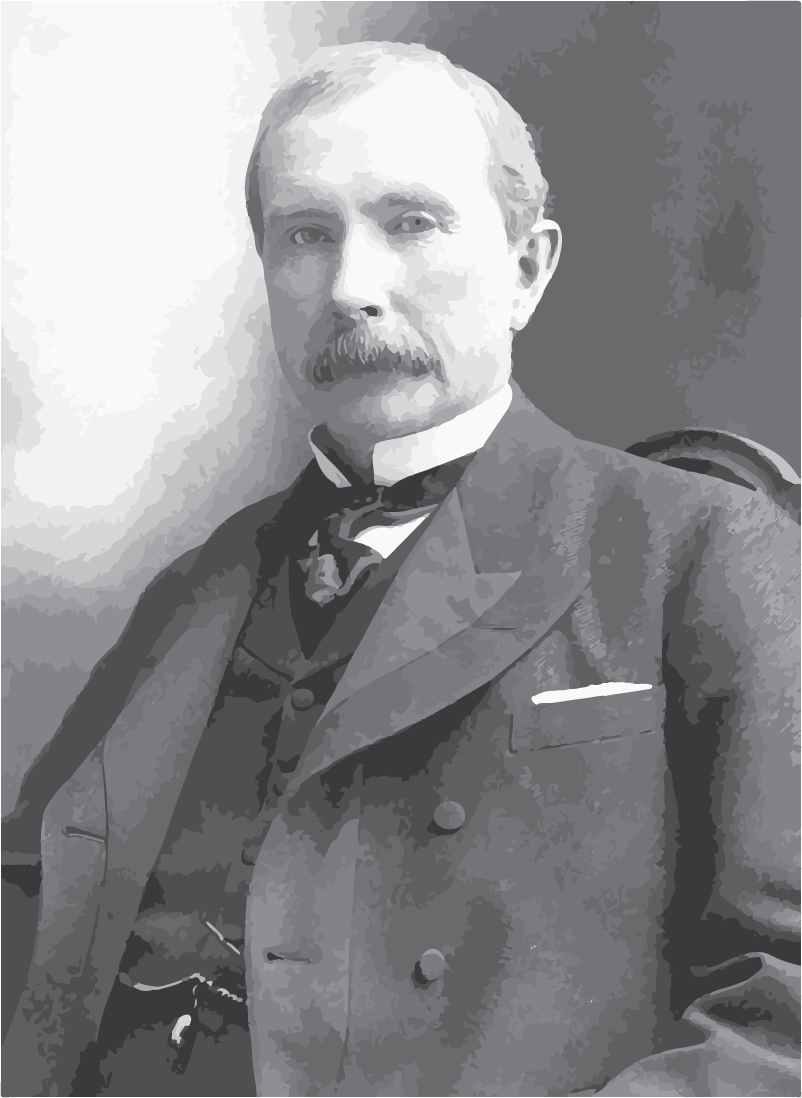
In the turbulent oil industry of the late 19th century, dozens of small companies scrambled for dominance and most collapsed. They spread themselves too thin, chasing too many directions at once.
John D. Rockefeller chose a different path. He poured all his energy into one thing: refining oil. With focus and ruthless efficiency, he bought out competitors, consolidated operations, and built Standard Oil into a near-monopoly. By the 1880s, his company controlled 90% of the U.S. oil market, not because he did everything, but because he mastered one thing better than anyone else.
The Power of Concentration
History rewards focus, not dispersion. Athens lost its empire by overextending into distant wars. Rome collapsed under the weight of a sprawling frontier. Napoleon’s downfall came from trying to conquer too much at once. Power dilutes when scattered, but multiplies when concentrated.
Find Your True Source of Power
No one rises alone. Power often flows from alliances whether with a mentor, an institution, or an industry leader. But in every system, the real influence is concentrated in a few hands, often hidden from view. If you want to rise, identify who truly pulls the strings—and place yourself close to that source.
Focus on One Target
You can’t hit two targets with one arrow. Divided energy produces weak results. Once you’ve found the source of strength, channel everything into one decisive strike. Concentration gives momentum, leverage, and impact.
The Risks of Over-Concentration
Focus is powerful, but it comes with dangers:
If you face a stronger rival, you risk becoming an easy target. When outmatched, it’s better to stay fluid, diversify your moves, and remain unpredictable.
If your entire power depends on one source, you’re tied to its fate. When it collapses, you collapse with it. Even while concentrating, keep secondary options open—small escape routes that ensure survival.
The Core Lesson
Power grows when energy is gathered, not scattered. Focus your efforts, build strength in one place, and strike with full force. But never forget: even the sharpest spear breaks if it’s thrown recklessly.
Law 24. Play the Perfect Courtier
The Castiglione Model

In Renaissance Italy, Baldassare Castiglione observed the hidden mechanics of power. He wasn’t a king or a general: he was a diplomat, moving in the shadows of courts. In his book The Book of the Courtier, he described the ideal power player: someone who influenced without threatening, pleased without seeming desperate, and navigated politics with grace.
The courtier never demanded authority, yet he secured influence that outlasted rulers. His lesson endures: those who master the art of subtle power rise, while those who ignore it fall.
The Court Has Changed, But Not the Game
Royal courts may be gone, but court politics remain alive. They exist in boardrooms, governments, and even social circles. Wherever power is concentrated, courtiers thrive. They survive by charm, strategy, and perception, not force. And today, just like in Castiglione’s time, those who play the game well gain influence beyond their title.
The Courtier’s Golden Rules
Please, but never over-flatter. Too much praise breeds suspicion.
Obey, but stand out. Show value without threatening authority.
Never make the ruler insecure. Always reassure their power.
Influence indirectly. Manipulate without being obvious.
Let others shine. Make the ruler feel more kingly.
Cultivate quiet power. People respect strength that doesn’t need shouting.
Guard appearances: image outweighs reality.
Use charm as a weapon. Courtesy disarms hostility.
Strike with subtlety. Cloak aggression in politeness.
Choose words carefully: less is often more.
Turn words into tools: transform compliments or insults into advantage.
Be a source of pleasure. People flock to those who uplift them.
Keep dignity. Never humiliate yourself to please.
Build networks, not enemies. Influence is protection.
Secure the ruler’s favor: it shields you from attack.
Control from the shadows: the best courtier can outlast kings.
The Deeper Laws of Court Politics
Avoid ostentation. Envy is born from too much display.
Practice nonchalance. Make skill seem effortless.
Flatter sparingly. Too much praise cheapens itself.
Stand out subtly. Presence should feel natural, not forced.
Mirror others’ style. People trust those who reflect their values.
Never deliver bad news. The messenger always pays.
Keep respectful distance from superiors. Familiarity breeds contempt.
Criticize indirectly. Wrap insight in tact.
Be careful with requests. Ask too much, and you lose leverage.
Don’t mock pride. Status and taste are fragile.
Avoid cynicism. Negativity makes you a target.
Be self-aware. Study how others see you and adjust.
Master emotions. Control them, or others will control you.
Fit the times. Outdated attitudes make you irrelevant.
Be enjoyable company. Even if you’re not the favorite, make your presence welcome.
The Core Lesson
Courtiers do not rule by force, they rule by perception. They master appearances, influence decisions quietly, and make themselves indispensable. In any environment where power matters, the ability to shape how you are seen is the ultimate advantage.
Law 25. Re-Create Yourself
The Napoleon Lesson

Napoleon Bonaparte was more than a general, he was an architect of his own legend. Rising from a young officer to revolutionary hero, he crowned himself Emperor in 1804, declaring that his authority came from no one but himself.
Even in exile, he never surrendered control of his image. Banished to Elba in 1814, most assumed his story was finished. Yet in the Hundred Days, he staged one of history’s boldest comebacks, marching toward Paris, daring soldiers to fire, only to see them rally to his side.
And even after Waterloo and his final exile to Saint Helena, Napoleon crafted his legacy through memoirs, shaping himself not as a defeated ruler but as a betrayed martyr. He wasn’t just a man, he became a myth.
The Power of Reinvention
Identity can be your greatest tool or your greatest trap. The world will try to define you, to lock you in a role, to make you predictable. But predictability is weakness.
Power belongs to those who refuse to be defined. To those who shape their own story, adapt to the moment, and reinvent themselves again and again.
How to Master Reinvention
-
Master Yourself
See life as a stage. Know the role you’re playing and how others perceive you.
Control your emotions and expressions. Adapt without losing command.
Create a memorable identity, one that sparks conversation and cannot be ignored.
-
Master Theatrics
Reinvention is performance. Timing, stage, and presentation matter.Use suspense, surprise, and bold gestures.
Make entrances and exits unforgettable.
Remember: mystery can be louder than words.
Your identity is a costume, wear it confidently, but never let it wear you.
-
Control Perception
People don’t see you as you are, they see what you present.Read the room and capture attention.
Reveal strategically. Too much too soon kills intrigue. Too little, and you fade away.
Master the balance between visibility and mystery.
The Theatrics of Reinvention
The Beau Geste: A bold, symbolic act that defines your reputation.
Stage Entrances and Exits: People remember the first impression and the final note. Make both count.
Understated Presence: Sometimes silence and restraint are more powerful than any display.
The Core Lesson
Reinvention isn’t about creating one identity, it’s about refusing to be trapped in one. The strongest players evolve, shifting roles as the game demands. To control your story, you must shape yourself, stage yourself, and re-create yourself endlessly.
Law 26. Keep Your Hands Clean
The Henry II Example

In the 12th century, King Henry II of England clashed with Thomas Becket, the Archbishop of Canterbury. Once allies, the two became bitter enemies when Becket defended the church’s authority over the king’s. Frustrated, Henry reportedly shouted, “Will no one rid me of this turbulent priest?”
His knights took the words literally. They stormed Canterbury Cathedral and murdered Becket in 1170. The killing shocked Christendom. Yet Henry denied giving the order. He kept his hands clean, avoiding direct blame,while still benefiting from his rival’s removal.
The Illusion of Purity
Power is dirty, but you must appear spotless. Reputation matters more than truth. Ruthless actions, scandals, and failures must never stain your image. The true strategist uses others as shields (scapegoats to take the blame, and cat’s-paws to take the risks)while they remain untouchable.
The Scapegoat Strategy
When disaster strikes, sacrifice someone else before suspicion turns to you.
Example: Cesare Borgia
During the Italian Renaissance, Cesare Borgia hired the brutal enforcer Remirro de Orco to crush opposition. De Orco ruled mercilessly, spreading fear and hatred. When resentment peaked, Borgia staged his execution and displayed the corpse in public. The people saw Borgia not as the tyrant, but as their savior for punishing one. By turning De Orco into the villain, Borgia preserved his reputation while strengthening his rule.
The Cat’s-Paw Strategy
A scapegoat takes the blame. A cat’s-paw takes the risk. When a move is dangerous or unpopular, let others carry it out—while you enjoy the rewards.
Example: Cleopatra
Exiled by her brother Ptolemy XIII, Cleopatra didn’t attack directly. Instead, she seduced Julius Caesar, persuading him to eliminate her enemies and restore her to the throne. Years later, she used Mark Antony the same way, pushing him to fight for her ambitions while she maintained control. Cleopatra never wielded a sword, but she ruled through those who did.
How to Keep Your Hands Clean
Detach from failure. Always have a scapegoat ready when things go wrong.
Avoid dirty work. Use cat’s-paws to handle dangerous or unpopular tasks.
Control the story. When mistakes happen, act fast, shift the blame before suspicion falls on you.
The Core Lesson
Appear pure, even when your hands are stained with strategy. Let others take the blame, take the risks, and take the fall. Power is never clean, but your image must be.
Law 27. Play on People’s Need to Believe to Create a Cult-like Following
The Manson Example
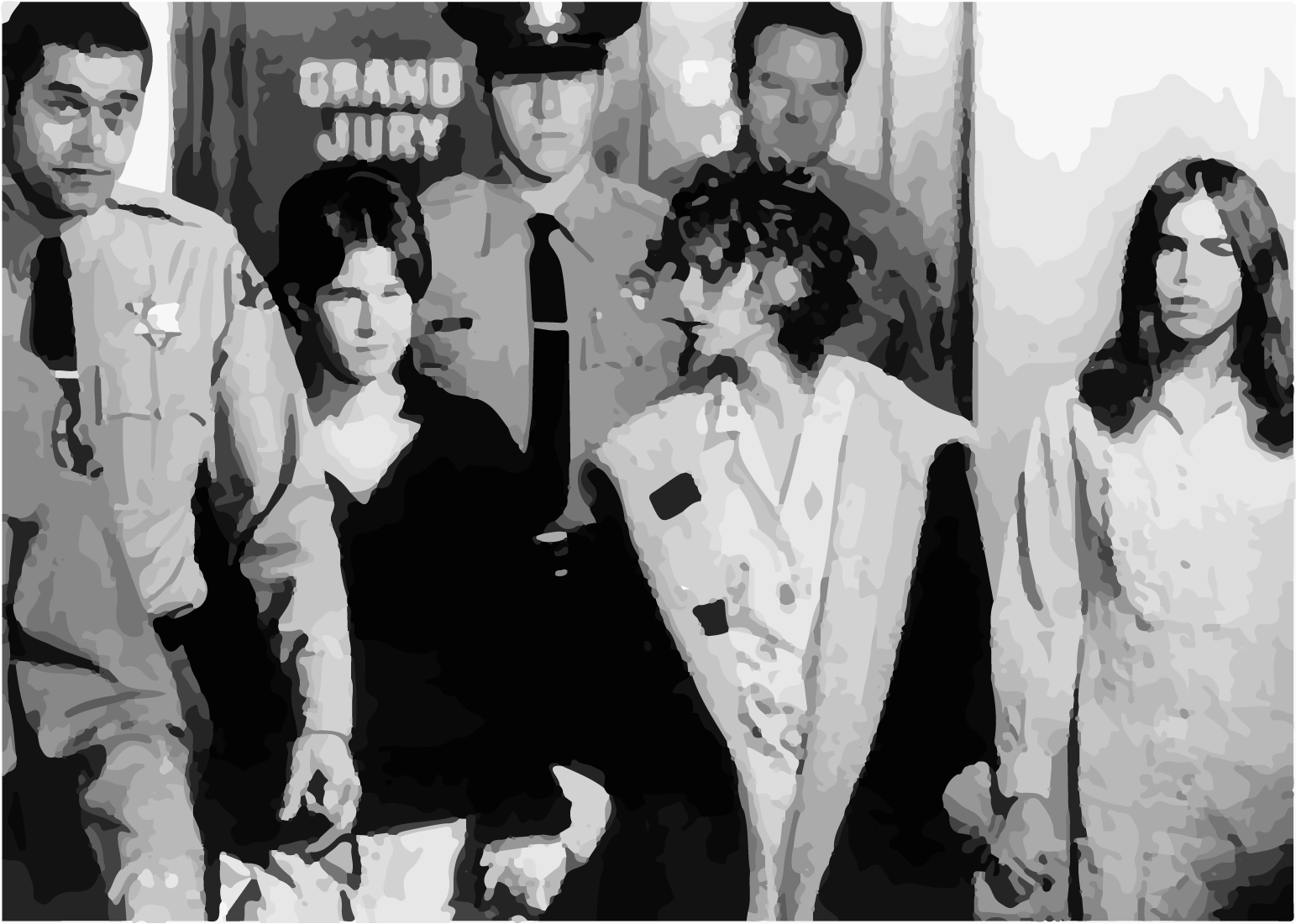
In the late 1960s, Charles Manson gathered a group known as The Family. He didn’t rule them with weapons or force, he ruled them with belief. Manson painted himself as a messianic figure, warning of an apocalyptic war and claiming only he could lead his followers to salvation.
He gave them rituals, a sense of purpose, and a cause greater than themselves. Once they believed, they obeyed completely. In 1969, under his direction, his followers carried out brutal murders, including the killing of actress Sharon Tate. Manson never lifted a weapon. His power came from convincing others to act on his vision.
The World Craves Illusions
Most people don’t want the hard truth, it demands effort and responsibility. Instead, they long for illusions: a story that gives meaning, hope, or a sense of destiny. Logic rarely moves people. Emotion does.
If you can embody a cause, a movement, or a vision larger than life, people will follow with blind devotion. And this devotion follows a pattern—a formula that has been repeated for centuries.
The Five-Step Formula to Cult-Like Power
Keep It Vague, Yet Inspiring
Your message should be simple but profound, filled with promise but light on details. The less you reveal, the more people project their own hopes onto you.
Say things like: “You are destined for greatness.” or “They don’t want you to know this secret.”Appeal to Emotions, Not Logic
Rational thinking is the enemy of devotion. Keep followers emotionally engaged through dramatic speeches, rituals, and mystery. Surround yourself with exclusivity. When people feel entertained, enchanted, and emotionally invested, they stop questioning.Borrow Religious Structures
Great movements echo religion. Create rituals, assign titles, and establish hierarchies. Ask for sacrifices (time, money, loyalty) and frame them as proof of transformation. Most importantly, elevate yourself above ordinary people: act like a prophet, visionary, or revolutionary. The more divine your image, the stronger your hold.Disguise Your Source of Power and Wealth
When success brings riches, never appear greedy. Present your gains as proof that your methods work, not as something taken from your followers. They will believe they too can succeed if they copy you, overlooking contradictions because belief blinds them.Create an “Us vs. Them” Dynamic
Every cult thrives on an enemy. Define outsiders as oppressors or non-believers. Convince followers they are a chosen group under attack. Fear tightens loyalty, keeping people bound to you even when doubts arise.
The Danger of Belief
This power is immense but dangerous. If your followers ever see through the illusion, devotion can turn into rage. History shows that the most charismatic leaders often fall at the hands of those who once worshipped them.
To maintain control, you must spy, manipulate, and shape the story at all times. And always keep an escape plan. Because once belief shatters, power collapses with it.
The Core Lesson
People crave faith, purpose, and illusion. If you supply it, they will follow you anywhere. But beware, what raises you to divine status can just as easily drag you down when the spell breaks.
Law 28. Enter Action with Boldness
The Cortés Example

In 1519, Spanish conquistador Hernán Cortés landed in Mexico with only a small force, facing the vast Aztec Empire. Outnumbered and deep in enemy territory, he made a shocking move: he ordered his men to burn their ships.
Retreat was no longer an option. Victory or death were the only paths forward. At first, the act looked reckless, but it worked. By removing hesitation, Cortés forced total commitment. His boldness inspired loyalty, focus, and ultimately led to the fall of the Aztecs.
Why Hesitation Kills Power
Hesitation spreads doubt. Doubt is contagious. Once you appear unsure, others lose confidence and turn against you. Boldness, on the other hand, seizes control. A bold move commands respect, while a timid one invites challenge.
Why Boldness Works
The Bolder the Lie, the More Believable
A bold demand or outrageous claim, delivered with confidence, often succeeds where caution fails. Confidence makes flaws invisible.Hesitation Invites Attack
Weakness attracts predators. Even those who aren’t ruthless will exploit hesitation. Confidence makes people think twice before opposing you.Boldness Creates Shock and Authority
A sudden, audacious act doesn’t just surprise people, it rattles them. Fear creates hesitation in others, which solidifies your power.Half Measures Are Fatal
Acting timidly digs your own grave. Doubt slows you down, hesitation opens gaps, and others take advantage. The bold move forward, the timid fall behind.Audacity Separates You from the Herd
Most people play it safe, fading into the background. The bold stand out, attract attention, and with attention comes influence.
The Weapon of Boldness
Boldness isn’t recklessness, it’s a tool. Plan carefully, then strike with full confidence. If you make mistakes, correct them with even greater boldness. But mistakes born of hesitation rarely can be undone.
The Core Lesson
Hesitation kills. Boldness inspires, intimidates, and commands respect. Strike first, strike hard, and the world will step aside for those who dare.
Law 29. Plan All the Way to the End
The Hannibal Lesson

Hannibal Barca, one of history’s greatest military minds, stunned the world in 218 BCE. During the Second Punic War, he did the unthinkable, leading an army, complete with war elephants, across the Alps to strike Rome from an unexpected direction. He crushed force after force, including the legendary Battle of Cannae, where he annihilated a Roman army twice his size.
But Hannibal never destroyed Rome. Despite his brilliance, he lacked an endgame. He conquered land but failed to secure resources and allies. He expected Rome to collapse, but instead, they regrouped and outlasted him. Years later, Hannibal died in exile, remembered as a genius tactician who lost because he never planned to the finish.
Short-Term Wins Are Not Enough
Victory today means nothing if you don’t control tomorrow. Without an endgame, short-term gains crumble into long-term losses.
Most people act on impulse. They chase wins, react emotionally, and hope things work out. But hope is not a plan. Improvisation can save you for a day, it cannot build lasting power.
Why Most People Fail at Long-Term Strategy
They get trapped in the moment, reacting instead of thinking ahead.
They confuse wishful thinking with real planning.
They improvise under pressure instead of preparing in advance.
They assume things will “work out” instead of anticipating obstacles.
They picture the happy ending but never map the path to get there.
How to Plan Like a Master Strategist
Step 1: Define the Endgame
Be specific. Is your goal power, wealth, influence? A vague destination guarantees vague results.Step 2: Map the Obstacles
Ask what could go wrong. Who will oppose you? The best generals win before the first battle by anticipating threats.Step 3: Set the Steps in Motion
Think like a chess player. Each move should deliberately position you closer to your ultimate objective.Step 4: Control the Timing
Know when to strike, when to wait, and when to retreat. Power comes from pacing, not just action.
The Core Lesson
Improvisation is survival. Planning is power. Those who see only the next move will always be defeated by those who see the end.
Law 30. Make Your Accomplishments Seem Effortless
The Houdini Lesson
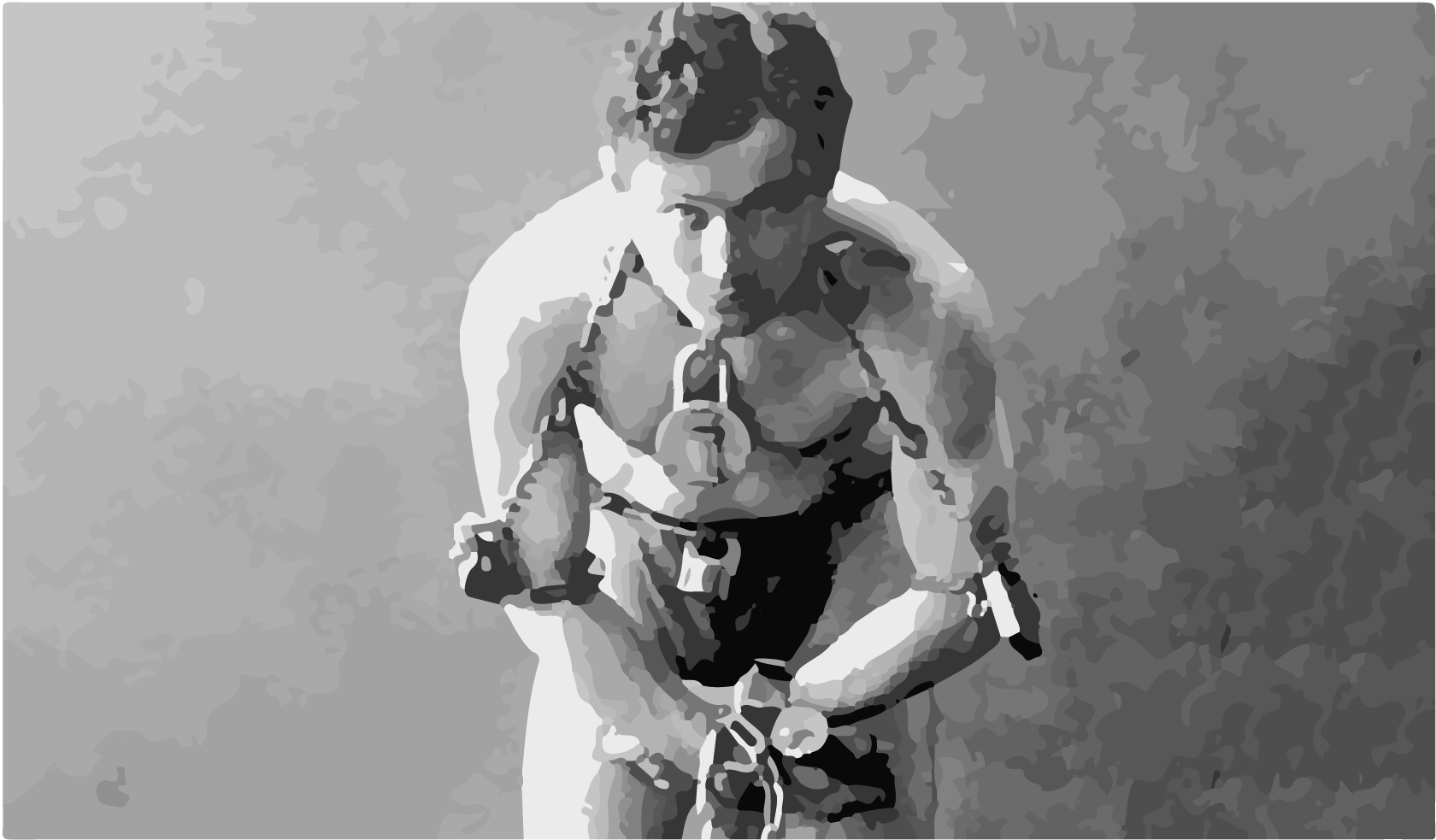
In the early 20th century, Harry Houdini astonished audiences with impossible escapes: slipping free from handcuffs, locked boxes, and even water-filled tanks. To the public, it seemed effortless, almost supernatural, as if Houdini possessed a gift beyond human ability.
But the truth was far less magical. Behind the illusion stood years of relentless practice, repetition, and refinement. Houdini mastered his craft until every move looked natural. By hiding the struggle, he created an aura of mystery that made people believe he was extraordinary.
The Illusion of Effortlessness
Power isn’t just what you accomplish, it’s how you present it. The most powerful figures make success appear easy, even inevitable. Behind the curtain, they work tirelessly. But to the outside world, they never sweat.
Show the effort, and you look ordinary. Conceal it, and you appear gifted. The perception of natural talent creates admiration and fear.
How to Master the Illusion
Practice Relentlessly in Private
Refine your craft until it looks natural, then reveal only the polished result.Never Show the Struggle
Once people see your sweat, they stop seeing your brilliance.Conceal Your Methods
The more mysterious your process, the more powerful your image becomes.
The Art of Sprezzatura
In the 16th century, Baldassare Castiglione coined the term sprezzatura: the art of making the difficult seem effortless. This principle lies at the heart of power:
If success looks natural, people believe you’re uniquely gifted.
Mystery fuels admiration when people can’t explain your abilities, they elevate you.
Over-explaining kills the magic. The moment you reveal your secrets, others believe they can replicate or outdo you.
Why Most People Fail
They crave recognition and want credit for their hard work.
They over-explain, exposing their process and destroying the illusion.
They mistake honesty about struggle for respect, when it often lowers authority.
They reveal too much, handing away their advantage.
The Golden Rules of Effortless Power
Maintain Mystery: The less effort you reveal, the more limitless you seem.
Control Perception: If people believe you achieve greatness with ease, they won’t just admire you, they’ll fear what you could do if you truly tried.
The Core Lesson
The greatest illusion of power isn’t just in having it, it’s in making it look effortless. Hide the struggle, show only the brilliance, and the world will believe you’re more than human.
Part 4: Laws on Psychological Warfare and Influence
Law 31. Control the Options: Get Others to Play with the Cards You Dealk
The Ivan the Terrible Example

In the 16th century, Ivan the Terrible faced two dangers: rebellious nobles within Russia and enemies pressing from outside. Crushing the aristocrats would weaken his defenses; focusing on foreign threats would embolden the rebels. Instead of choosing, Ivan staged a dilemma.
In 1564, he abruptly abandoned Moscow, claiming he could no longer rule under such opposition. The city panicked. Without the czar, they feared rebellion and chaos. Desperate, they begged him to return. Ivan agreed on one condition: absolute power.
The people thought they had a choice. In reality, there was never one. Whether they submitted willingly or fell into chaos, Ivan’s design guaranteed his dominance.
The Illusion of Choice
The most effective manipulations don’t force people down a single path: they present multiple options, all leading to your desired outcome. People resist commands, but when they believe they are choosing, they comply willingly.
This works because unlimited freedom is overwhelming. Too many options create paralysis. People crave simplicity, and when you reduce the choices to a few controlled ones, they feel safe: never realizing the game was rigged from the start.
Tactics to Control the Options
Color the Choices – Present the option you want in the best light while making alternatives appear costly or unattractive.
Force the Resister – Contrarians will defy authority no matter what. Push them toward the opposite of what you want—so that “defying” you actually serves your goal.
Alter the Playing Field – Don’t remove options outright, reshape the environment so your desired choice is the only practical one.
The Shrinking Options – For those who hesitate endlessly, apply time pressure. Let alternatives worsen over time until acting feels safer than waiting.
The Weak Man on the Precipice – The timid fear tough decisions. Make inaction feel like the most dangerous choice of all.
Brothers in Crime – Tie people to you by involving them in something questionable. Shared guilt locks loyalty.
The Horns of a Dilemma – Present two bad options. As they scramble for an escape, guide them toward the hidden third path—the one you intended all along.
The Danger of Overplaying This Law
Controlling the options is subtle work. If people realize they’ve been cornered, resentment will override logic, and they’ll resist simply out of spite. The key is invisibility: let them feel free, even while they walk the path you chose.
The Core Lesson
True power isn’t in commanding, it’s in shaping the field of choices so that, no matter what others decide, they serve your purpose.
Law 32. Play to People’s Fantasies
The Conquistador Lesson

In the early 1500s, Spanish conquistadors crossed the ocean chasing promises of unimaginable riches. Hernán Cortés didn’t inspire his men with harsh truths about long battles, disease, and death. Instead, he painted a vision: gold beyond imagination, glory eternal.
For poor, desperate men, that dream was irresistible. Belief in the fantasy gave them courage to face impossible odds, leading to the fall of empires. Cortés didn’t lead through reality, he led through illusion.
Why People Cling to Fantasy
The truth is avoided not because it’s hidden, but because it’s ugly. Life is harsh. People suffer. But few want to admit their own choices led them there. Instead, they blame fate, the system, or others and if the problem comes from outside, the solution must too.
That’s why people search for saviors, shortcuts, and miracles. They don’t want gradual progress through hard work. They want transformation—instant, effortless, inevitable. Those who understand this truth can shape entire movements.
The Four Fantasies That Rule Desire
The Fantasy of Instant Change
Reality: Success takes time and sacrifice.
Fantasy: One magical event will change everything, a lottery win, a secret formula, a hidden shortcut.
Why it works: People hate patience. Sell instant transformation, and they’ll cling to it fiercely.The Fantasy of Escape
Reality: Life is full of rules, limits, and responsibilities.
Fantasy: You can abandon it all—step into freedom, adventure, and reinvention.
Why it works: People crave a way out, which is why cults, radical movements, and luxury fantasies thrive.The Fantasy of Unity
Reality: Society is divided by conflict and self-interest.
Fantasy: A world where everyone comes together in harmony.
Why it works: Belonging is a deep human need. Leaders who promise unity can rally masses, but this is also the most dangerous fantasy, often exploited by demagogues.The Fantasy of Reversing the Irreversible
Reality: The past is gone. Death is final.
Fantasy: What’s lost can be restored whether it’s a golden age, a second chance, or even cheating death itself.
Why it works: Nostalgia is addictive. People chase ghosts, believing they can reclaim what can never return.
The Trick to Keeping Fantasy Alive
A fantasy must always stay just out of reach. If it ever becomes real, it loses power. Gurus who truly delivered on their promises would lose their followers, because belief thrives on pursuit, not arrival.
The masters of illusion keep people chasing. They suggest the breakthrough is always near, just one step away. Once people are addicted to that hope, they will follow you anywhere.
The Core Lesson
Reality rarely moves the masses. Fantasy does. Feed people the dream they long for, keep it just out of reach, and they’ll surrender reason, loyalty, and even their lives to your vision.
Law 33. Discover Each Man’s Thumbscrew
The Hoover Lesson
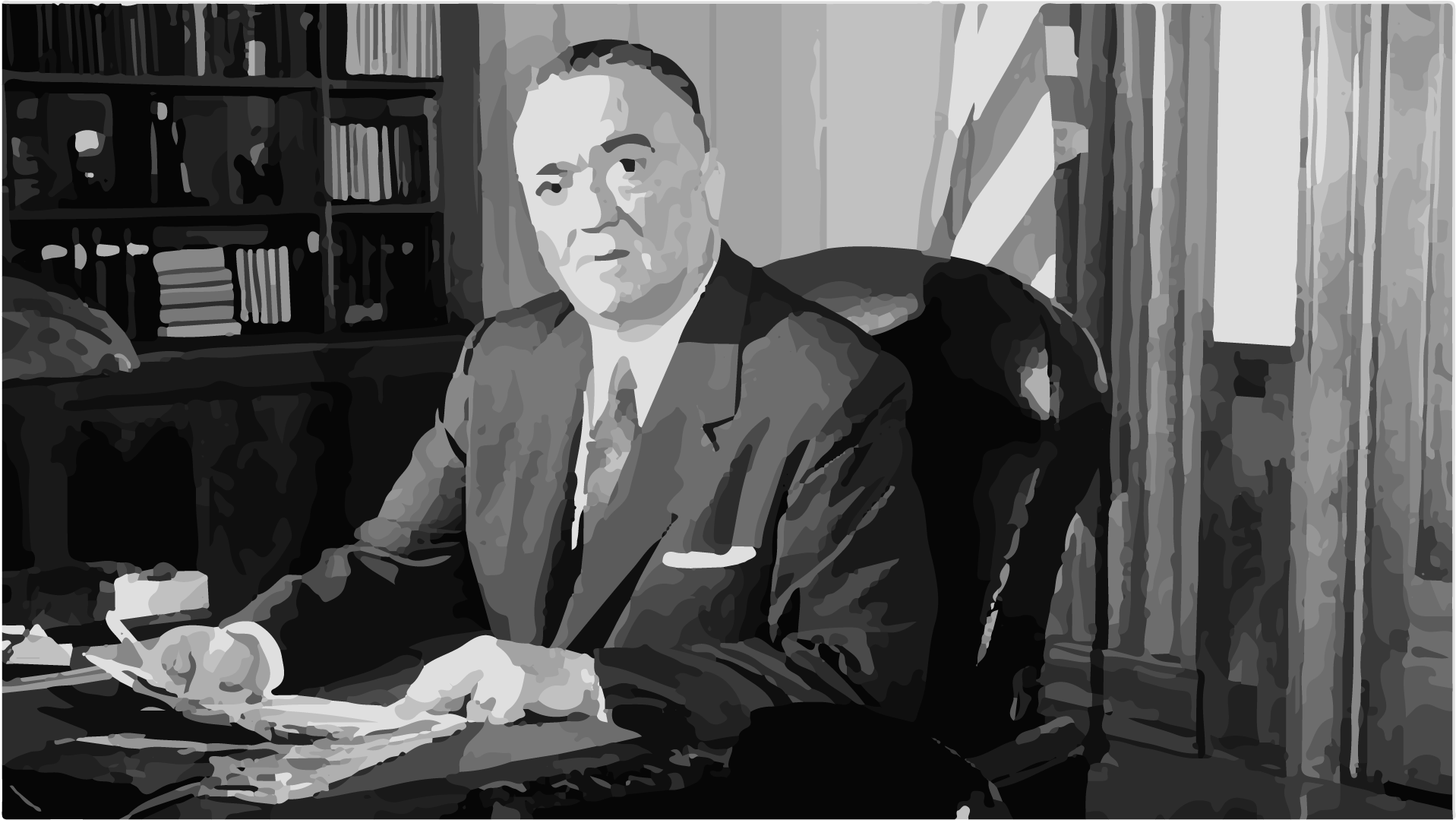
J. Edgar Hoover ruled Washington not because his title made him untouchable, but because he knew people’s secrets. He collected files (affairs, addictions, past mistakes) and used them as quiet insurance. People who feared exposure rarely dared to cross him. Hoover’s power came from a simple truth: everyone has a weak point. Find it first, and you gain leverage.
Why Weaknesses Matter
Everyone carries a vulnerability: an insecurity, a vice, a memory that still hurts. These soft spots shape behavior more than logic ever will. If you understand what someone secretly needs, fears, or worships, you can predict them, influence them, or defend yourself against their moves.
Six Principles to Read a Person (Use Responsibly)
Read the Unspoken Signs
People give themselves away in small gestures: how they treat service staff, what angers or excites them, how they respond to praise or criticism. Listen more than you speak; people reveal their soft spots to those who pay attention.Find the Helpless Child
Adult behavior often traces back to childhood wounds. Someone who was starved for approval will chase praise. Someone spoiled will expect indulgence. Identify the unmet need and you know what they’ll compromise for.Spot the Contradictions
People often overcompensate: the boastful may hide deep insecurity; the rigid may secretly crave chaos. Contradictions point straight to the hidden desire.Locate the Weak Link
Not everyone is directly manipulable but people around them often are. Advisors, lovers, or business partners are doors to the person you want to influence. Win the weak link and you gain indirect access.Fill the Emotional Void
People act out of insecurity or unhappiness. Offer validation, belonging, or escape, and they grow dependent. Give the illusion of a fix, and they will come back for more.Exploit Uncontrolled Emotions (Carefully)
Lust, vanity, greed, and fear override reason. Suggest a threat, flatter an ego, or dangle a tempting reward, emotions will do the rest. But nudging feelings is a scalpel, not a sledgehammer: subtlety matters.
The Danger of Misuse
This knowledge is powerful and dangerous. Push too hard, and the person may lash out or expose you. Make someone feel trapped, and they will try to break free. Use these insights to protect yourself and navigate power, not to destroy others. If you choose to influence, do so with restraint and an escape plan.
The Core Lesson
Power often lives in the soft spots of others. Understand what people secretly want, fear, or hide and you control the lever that moves them. But remember: discovering a thumbscrew is as much about defense as it is about advantage. Would you like a modern example (corporate, political, or social) to make this one feel current?
Law 34. Be Royal in Your Own Fashion: Act Like a King to Be Treated Like One
The Caesar Lesson
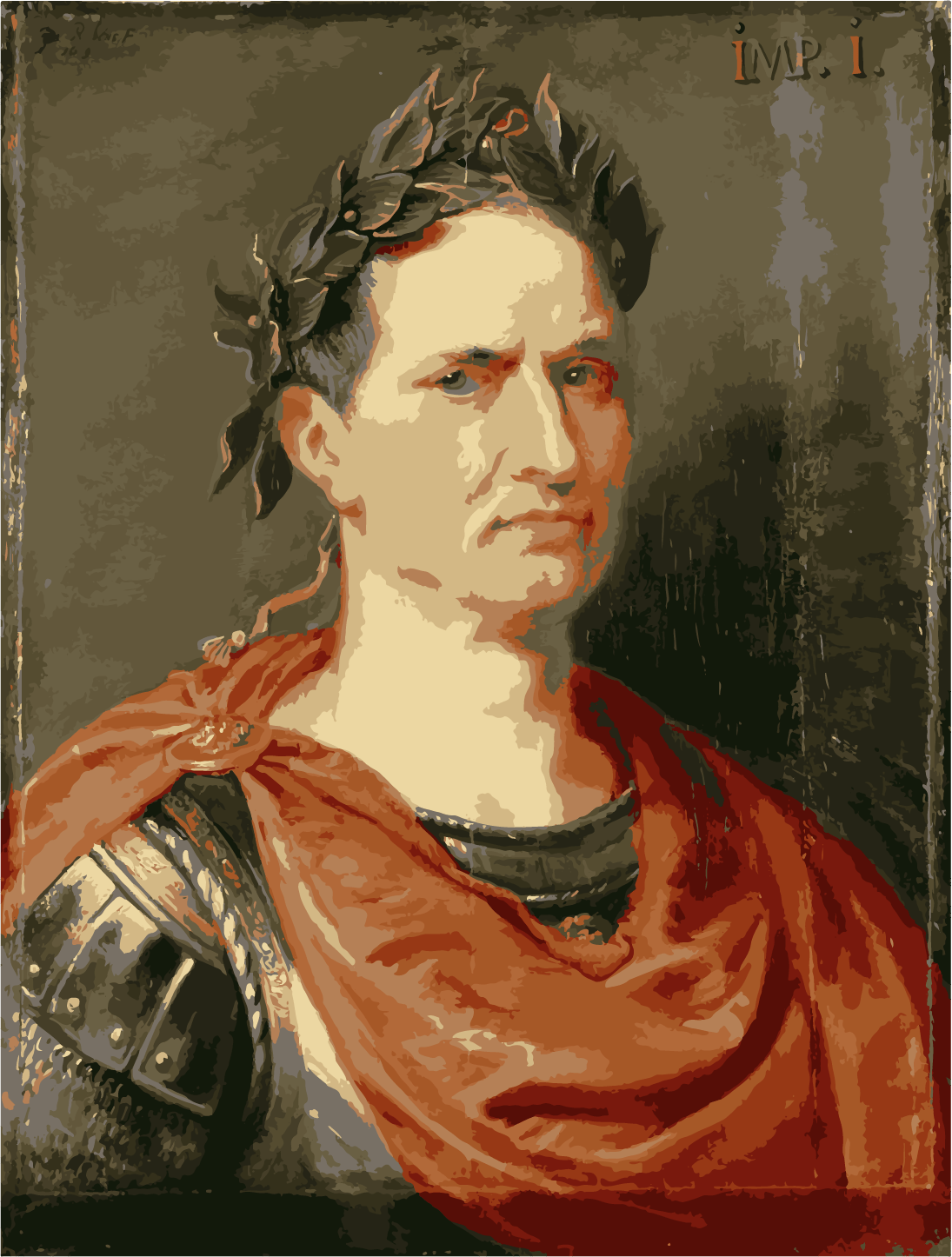
Long before Julius Caesar ruled Rome, he carried himself like royalty. He dressed elegantly, spoke with authority, and commanded his soldiers as if his rise to greatness was inevitable. By projecting the image of a king, people began treating him like one. So when he finally seized power, it didn’t feel like an upheaval, it felt like destiny.
The Trap of False Humility
Many people shrink themselves out of fear. They downplay their strengths, hoping modesty will make them likable. But false humility breeds contempt, not respect. People sense when you hide your worth, and instead of admiring you, they dismiss you.
Worse still, when leaders erase the natural distance between themselves and others, they lose mystique. Without mystique, there is no admiration. Without admiration, there is no power.
The Real Problem: Limits We Accept
It’s not just about pretending to be humble, it’s about believing you’re unworthy of greatness. Over time, that belief becomes reality. If you act small, you’ll be treated as small. If you carry yourself like royalty, eventually, people will treat you as such.
The Strategy of the Crown
To command respect, act as if you deserve it. Believe in your own destiny so strongly that others believe it too. Confidence is magnetic. When you move with certainty, people assume you have the right to lead.
But royalty isn’t arrogance. It’s dignity, composure, and quiet authority. True rulers don’t prove their worth, they embody it.
Move with dignity, never desperation.
Show confidence, not arrogance disguised as insecurity.
Never beg for validation. Power is assumed, not requested.
Strategies to Reinforce Your Royal Aura
The Columbus Strategy: Make Bold Demands
Christopher Columbus was the son of a cheese merchant, yet he acted like nobility. When seeking funding, he demanded wealth, titles, and hereditary rights. By setting his price high, he forced others to treat him with respect. Ask for little, get little. Ask boldly, and people assume you’re worth more.The David and Goliath Strategy: Challenge the Mighty
By confronting powerful figures, you place yourself on their level. People measure you by the opponents you face. Daring to challenge greatness elevates your own stature.The Gift Strategy: Give to Establish Equality
A well-chosen gift can subtly shift the power balance. By giving value to someone above you, you create reciprocity. Suddenly, you are no longer a supplicant, you are an equal.
The Risks of Overplaying Confidence
Never humiliate others to elevate yourself, it creates enemies.
Don’t stand too far above the crowd or you’ll become an isolated target.
Avoid vulgar excess, flaunting recklessness or crudeness wins short-lived attention, not lasting respect.
The Core Lesson
The world treats you as you present yourself. Carry yourself with dignity, confidence, and quiet authority, and people will see you as destined for greatness. Act like royalty, and sooner or later, you’ll be treated like it.
Law 35. Master the Art of Timing
The Rockefeller Lesson

John D. Rockefeller didn’t build an empire by rushing. He watched. He waited. When competitors faltered during downturns, he moved: buying assets cheap, consolidating power, and expanding while others were exhausted. Rockefeller understood that the right move at the wrong time is failure, while the right move at the right time becomes irreversible advantage.
Why Timing Is Power
Time isn’t neutral, people’s emotions and expectations bend it. Impatience signals weakness; precision in timing signals control. Those who master timing see farther, avoid traps, and turn opportunities into lasting gains. Acting too fast wastes resources. Acting too slow hands the initiative to someone else.
Three Kinds of Time (and How to Use Them)
1. Long Time: The Art of Waiting
Some victories require patience. Power built slowly is resilient. The Tidal Wave Strategy: position yourself to ride the historical or market tide rather than fight it.
Don’t panic in downturns, prepare.
Accumulate quietly while others burn resources.
Know when to step aboard the rising wave and when to jump off before it crests.
2. Forced Time: Control Others’ Pace
You can’t only wait, you can make others rush. The Chess Player Strategy: dictate tempo to throw opponents off rhythm.
Speed up when hesitation benefits you.
Slow things down when your opponent is flustered.
Use deadlines, staged escalations, or sudden urgency to force errors.
3. End Time: Strike with Finality
Preparation is worthless without decisive action. The Snake-Charmer Strategy: lull your opponent, then strike instantly and absolutely.
When the moment arrives, move fast and close the door.
Don’t leave openings for second chances, finish cleanly.
A single, perfectly timed strike can eclipse years of work.
Common Timing Mistakes
Acting from fear, not strategy.
Waiting for “perfect” conditions until the window closes.
Failing to force tempo when an opponent needs to hurry or slow down.
Hesitating at the decisive moment and letting advantage slip away.
Practical Rules for Better Timing
Watch patterns (markets, moods, alliances) and time your moves to their cycles.
Prepare contingency plans so you can move instantly when the window opens.
Learn to create pressure points (deadlines, scarcity, social momentum) that bend others’ timing.
Balance patience and audacity: wait for the right moment, then act without regret.
The Core Lesson
Timing turns action into power. Don’t merely act, time your actions. Wait like a strategist, force tempo like a master, and strike with the finality of someone who knows the value of the moment.
Law 36. Disdain Things You Cannot Have: Ignoring Them Is the Best Revenge
The Diogenes Lesson

When Alexander the Great offered Diogenes anything he desired, the philosopher gave a shocking reply: “Yes, move out of my sunlight.”
In that moment, the most powerful man in the world realized he had nothing to offer. Diogenes wanted nothing—and that made him untouchable. By showing disdain for what others worshiped, he proved himself beyond control.
The Hidden Dynamic of Power
Power often shifts around desire and reaction. Whoever needs less holds the advantage.
When others insult you, they expect anger. If you stay indifferent, their attack dies on its own.
When rivals try to provoke you, fighting back feeds them. Ignoring them starves them.
When setbacks happen, panic reveals weakness. Calm indifference shows control.
Silence, distance, and composure strip power from others’ actions. What you ignore loses its grip on you.
The Paradox of Desire
The more you chase something, the more power you give it. Desperation repels. Indifference attracts.
Approval seekers are ignored.
Lovers who beg are rejected.
Ambitious climbers who show hunger are treated as expendable.
But the one who walks away becomes the prize. By acting unbothered, you shift the dynamic. What you seemed to reject starts chasing you instead.
Practical Ways to Apply This Law
Treat insults as invisible. Silence is the sharpest response.
Let rivals waste energy trying to provoke you, while you conserve yours.
When you lose something, shrug it off. Indifference magnifies your power.
Hide your desires. Want something too openly, and you hand others leverage.
The Core Lesson
The world respects those who need nothing. By ignoring what you can’t have and by showing indifference to insults, rivals, and even losses, you reverse the power dynamic. The less you care, the more others do.
Law 37. Create Compelling Spectacles
The Louis XIV Lesson

In the late 17th century, Louis XIV transformed Versailles into more than a palace, it became a stage. His famous “rising” ceremony turned something as ordinary as getting dressed into political theater. Nobles competed for the honor of handing him his shirt, believing it was a privilege, when in reality, it kept them occupied and obedient.
Louis understood a timeless truth: power is not only enforced, it is performed. By dazzling the court with ceremony, architecture, and ritual, he ensured loyalty without needing to lift a sword.
The Power of Spectacle
Logic convinces the mind, but spectacle conquers the heart. People don’t crave facts, they crave feeling. A powerful image, a dramatic act, or a striking ritual bypasses reason and embeds itself in memory.
Think of religious ceremonies, political rallies, or viral marketing campaigns. They don’t rely on words alone. They use symbols, rituals, and drama to stir awe. And once people feel awe, they create their own reasons to believe.
How to Master Spectacle
Use Powerful Imagery
Symbols outlast speeches. A crown, a flag, or a stage set in grandeur lodges in memory long after words fade.Create a Signature Look or Act
A recognizable trait (a uniform, phrase, or gesture) makes you unforgettable.Borrow from Tradition
Timeless symbols carry weight. History gives your spectacle credibility.Stage Performances, Not Explanations
A well-crafted moment of drama makes people feel truth rather than argue it.
Why It Works
Words invite debate. Images feel undeniable.
Explanations weaken authority. Spectacle makes it self-evident.
Words divide. Spectacle unites.
The Core Lesson
Power is not just spoken, it is shown. If you want to command attention, don’t explain yourself. Create drama, stage symbols, and craft moments so compelling that people stop questioning and simply believe.
Law 38. Think as You Like but Behave Like Others
The Galileo Lesson

In the 17th century, Galileo Galilei provided proof that the Earth revolved around the Sun, contradicting the Catholic Church. For this, he was summoned before the Inquisition in 1633. He faced a choice: defend the truth and risk execution, or recant and live. Galileo chose survival. He outwardly conformed, publicly renouncing his discovery, while privately holding to his beliefs. His ideas endured long after him, but only because he chose discretion over martyrdom.
The Danger of Standing Out Too Soon
Challenging the status quo rarely brings admiration, it brings resistance. People don’t like being made to feel wrong, judged, or inferior. Even if your intention is noble, your defiance often looks like arrogance. Instead of seeing you as courageous, they see you as a threat.
The powerful understand this. They know the game is long. Instead of wasting energy on battles they cannot win, they adapt, quietly building influence until the moment is right.
How to Think Freely While Blending In
Blend in to be left alone: Behave conventionally in public while keeping your private thoughts your own.
Let people assume you agree: Agreement flatters them and keeps their goodwill.
Choose your audience carefully: Share your true ideas only with those capable of appreciating them.
Don’t reveal too much: Ambiguity shields you from accusations and misunderstandings.
Avoid martyrdom: Suffering for your beliefs doesn’t change minds. Survival allows you to influence over time.
Build power before revealing yourself: Once secure, you can shape opinion gradually instead of provoking backlash.
Stay adaptable: Those who fit in best gain the freedom to act when it matters most.
Why People Resist New Ideas
Beliefs are not logical, they are identity. When you challenge someone’s worldview, you’re not debating an idea; you’re attacking who they are. That’s why arguments rarely convert, but often create enemies. If you want to change minds, don’t force people to face their contradictions head-on. Plant seeds quietly, and let them grow on their own.
The Core Lesson
Freedom of thought is untouchable, but freedom of expression is strategic. Think as you like, but behave as others do, until the moment comes when your power is strong enough to reveal itself without fear.
Law 39. Stir Up Waters to Catch Fish
The Napoleon Lesson
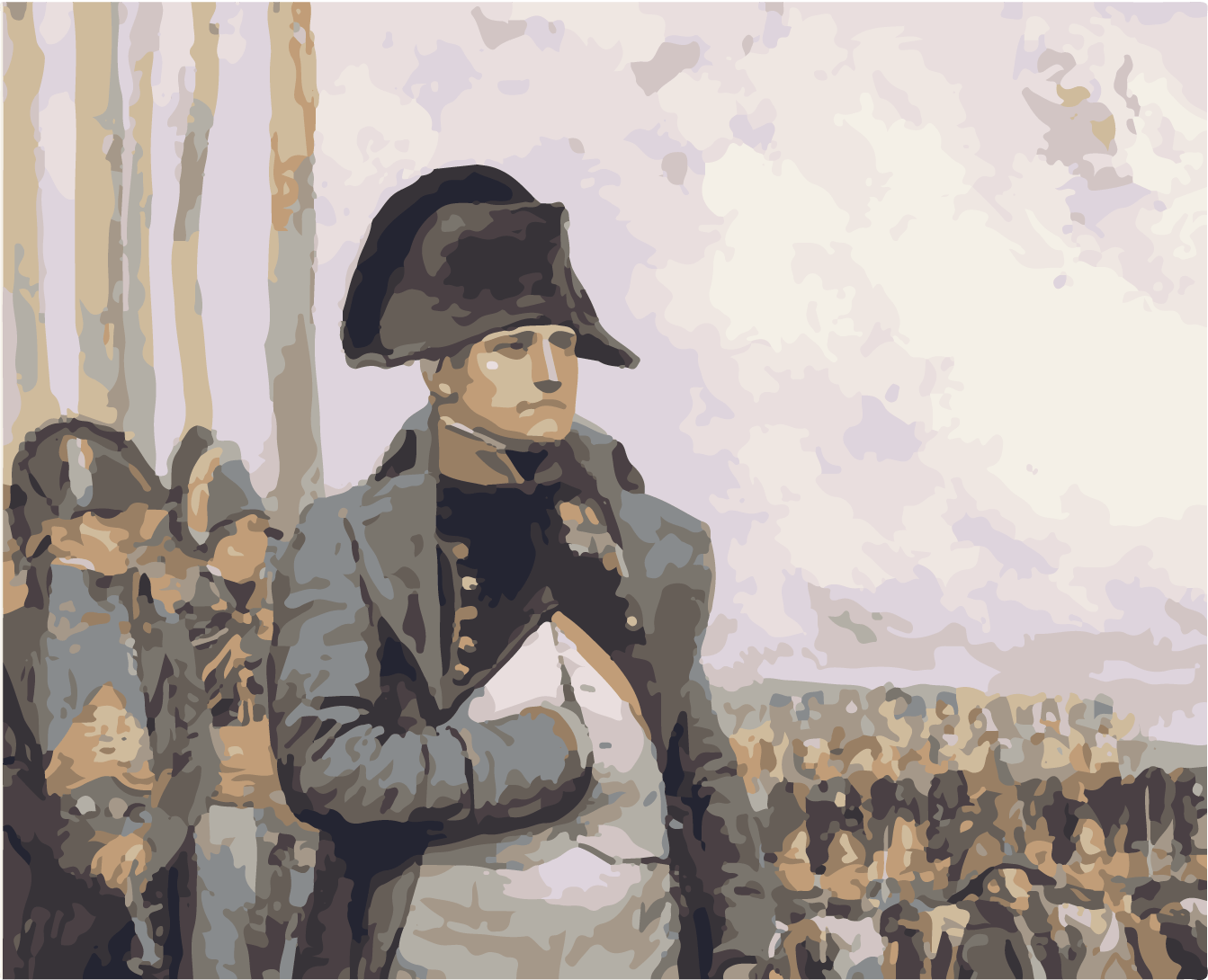
Napoleon Bonaparte knew that chaos could be a weapon. Before invading Austria in 1809, he deliberately sowed distrust among Austria’s allies. Divided and reactive, they became easy prey for his army. By stirring the waters, Napoleon forced his enemies into rash decisions and gained complete control of the battlefield.
Why Anger Is a Trap
Emotion clouds judgment. The moment you lose control, you hand power to your opponent. But if you can provoke others into anger while remaining calm yourself, they become predictable, impulsive, and easy to manipulate.
Great strategists never let their own emotions dictate their actions. Instead, they incite emotions in others, turning anger into a weapon against them.
How to Provoke Without Losing Control
Stir the Waters: Disrupt calm environments. Pride, vanity, insecurity, or fear can all be buttons to push.
Exploit Weaknesses (Real or Illusory): Expose flaws, or even hint at them, to spark overreaction.
Appear Weak: Nothing lures an enemy faster than the illusion of easy victory.
Stay Unshaken: Calmness while others unravel intensifies their frustration.
Choose Targets Wisely: Use this tactic against those vulnerable to emotion, not against overwhelming power.
Why Anger Weakens You
If you’re the one provoked, you lose more than composure, you lose authority.
Anger creates fear temporarily, but resentment permanently.
Outbursts make you look unstable and untrustworthy.
Rash words become ammunition in your enemies’ hands.
To the crowd, you don’t look powerful, you look childish.
The Power of Emotional Control
The strongest leaders master their own emotions while manipulating others’.
Provoke the insecure by questioning their competence.
Irritate the impatient by making them wait.
Use feigned anger strategically, not as an uncontrolled reaction, but as a weapon to intimidate.
The Core Lesson
Chaos is a tool. If you stay calm while others rage, you hold the advantage. Stir the waters when it benefits you, but never let yourself drown in the storm you create.
Law 40. Despise the Free Lunch
The Louis XIV Lesson

When Louis XIV inherited the throne, France’s nobility was proud, restless, and difficult to control. Instead of destroying them by force, he bound them with dependence. He made them spend lavishly at Versailles to maintain their status, draining their fortunes. Then, when loyalty was needed, he didn’t demand it, he staged it. He would ignore a noble until anxiety grew, then suddenly grant them a favor: a post for their son, money for their province, or a priceless gift. Gratitude replaced rebellion. They felt indebted, not coerced. That loyalty was stronger than fear.
The Power of Paying Full Price
Nothing is truly free. A free gift is rarely without strings. It creates hidden obligations, debts, or manipulation you may not see until it’s too late. Accept too much, and you become dependent.
But when you pay full price, you owe no one. Independence is preserved. On the flip side, strategic generosity builds influence. When you give with timing and intent, you don’t lose power, you gain it. People admire generosity, trust it, and most importantly, feel indebted to it.
The Hidden Dangers of Money Mindsets
To master this law, first understand how people misuse money and how that makes them predictable.
The Greedy Fish: Obsessed with profit, blind to traps. Offer them quick gains, and they’ll bite every time.
The Bargain Demon: Obsessed with cost, blind to value. They waste energy chasing cheap wins while missing long-term gains.
The Financial Sadist: Uses money as control, paying late or holding debts over others. If they enjoy making you beg, the relationship is poison.
The Indiscriminate Giver: Gives too freely out of need for validation. Their generosity loses value because it’s unfocused and desperate.
Five Lessons on Money and Power
Reject Free Favors: Free always has hidden costs. Pay for what matters and stay free.
Exploit Greed: Easy money blinds people. Use it to bait those driven by hunger.
Sell the Dream: The smartest don’t chase wealth, they profit by selling the idea of wealth to others.
Spend Strategically: Don’t be cheap. Targeted generosity builds loyalty and power.
Think Long-Term: Fast money fades. Lasting power comes from patience, control, and timing.
The Core Lesson
What looks free is often the most expensive trap. Avoid dependence, refuse bait, and use money not as a crutch but as a tool. Spend deliberately, give strategically, and you’ll keep control while others get tangled in their own greed.
Part 5: Laws on Leadership and Authority
Law 41. Avoid Stepping into a Great Man’s Shoes
The Louis XVI Lesson

Louis XVI inherited the French throne from his grandfather, Louis XV. But looming over both was the towering legacy of Louis XIV, the Sun King, who made France the center of European power.
Louis XVI tried to imitate that grandeur. He clung to the same ceremonies, the same rituals, but without the charisma or strength to carry them. Where Louis XIV commanded respect, Louis XVI hesitated. Instead of adapting to a new era, he trapped himself in the shadow of the past. The result was predictable: he lost control of his court, lost his throne, and eventually, lost his head.
The Weight of a Legacy
Power demands presence. But when you follow a legend, your presence diminishes. Too many successors cling to old blueprints, forgetting that times change. What built an empire in one era can destroy it in another.
If you imitate, you shrink. If you break free, you stand out.
Five Dangers of Clinging to the Past
You forfeit the chance to shape your own world.
You’re chained to outdated traditions.
You remain in someone else’s shadow, never your own force.
You assume yesterday’s success guarantees today’s. It doesn’t.
Fear of losing an inheritance makes you weak and hesitant.
How to Break Free and Build Your Own Legacy
Eliminate the Father Figure: Symbolically remove the predecessor. Napoleon abolished monarchy altogether and crowned himself emperor, severing ties to old rulers.
Reject Outdated Precedents: Treat failed traditions as dead weight. Steve Jobs, on his return to Apple, scrapped failing projects and rebuilt from scratch.
Exploit the Generational Divide: Stir rebellion against the obsolete. Frame yourself as the leader of a new age.
Make a Symbolic Break: Bold gestures cement transformation. Elon Musk replacing Twitter’s bird with “X” declared a new identity overnight.
The Second Half: Filling the Void
Rejecting the past is only half the work. Once you clear the old, you must create something new.
Identify gaps in the present, spaces where no leader exists.
Position yourself as the first and only figure to fill that gap.
Build a name that stands alone. Never be “the next” someone, be the first you.
The Core Lesson
Imitators fade. Innovators endure. If you want true power, don’t inherit footsteps—erase them. Forge your own path, and history will remember you not as the next great man, but as the first of your kind.
Law 42. Strike the Shepherd and the Sheep Will Scatter
The Hoover Lesson

J. Edgar Hoover didn’t dismantle organized crime by chasing every henchman, he went for the leaders. Al Capone wasn’t felled by taking down every bootlegger; he was taken down by exposing a legal vulnerability: tax evasion. Remove the head, and the body collapses.
Every Problem Has a Source
Groups, movements, and toxic cultures rarely self-organize into chaos; they usually have a focal point, one person who stirs, organizes, or benefits from the dysfunction. Neutralize that source and the rest unravels. Chasing surface symptoms is busywork. Attack the root and the sickness dies.
How to Spot the Shepherd
Troublemakers often fall into three types:
The Arrogant Elite: Acts above the rules, breeds resentment.
The Isolated Leader: Holds formal power but few true allies; unstable and dangerous if unchecked.
The Manipulator: Quietly sows discord, plays factions against each other.
How to Remove Influence (Without Making a Martyr)
Don’t waste time reforming. Attempts at rehabilitation often embolden them.
Avoid direct public confrontation. A frontal attack can turn them into a martyr and rally supporters.
Cut the Roots. Isolate them from resources, allies, and credibility so their power dries up.
Separate them from followers. Turn the base against them by exposing behavior in a controlled, factual way.
Act swiftly. Influence compounds fast, delay lets them entrench.
Make a clear example. One decisive, well-handled removal deters copycats.
Expose strategically. Reveal facts that undercut their narrative rather than smear campaigns that create sympathy.
Isolation vs. Elimination
Killing or publicly destroying a leader can backfire, martyrdom breeds myth. Isolation is smarter: strip power quietly, deny attention, and let the group turn away. Isolated people lose credibility, become vulnerable, and often implode without dramatic measures.
Ways to Isolate
Physical: Remove them from the environment (transfer, exile, sidelining).
Political: Revoke authority, cut access to resources and allies.
Psychological: Undermine their narrative; expose contradictions so supporters lose faith.
The Core Lesson
Power concentrates at the top. Don’t fight the flock, remove the shepherd. Do it swiftly, subtly, and smartly so the group disperses without creating a legend in their honor.
Law 43. Work on the Hearts and Minds of Others
The Napoleon Lesson
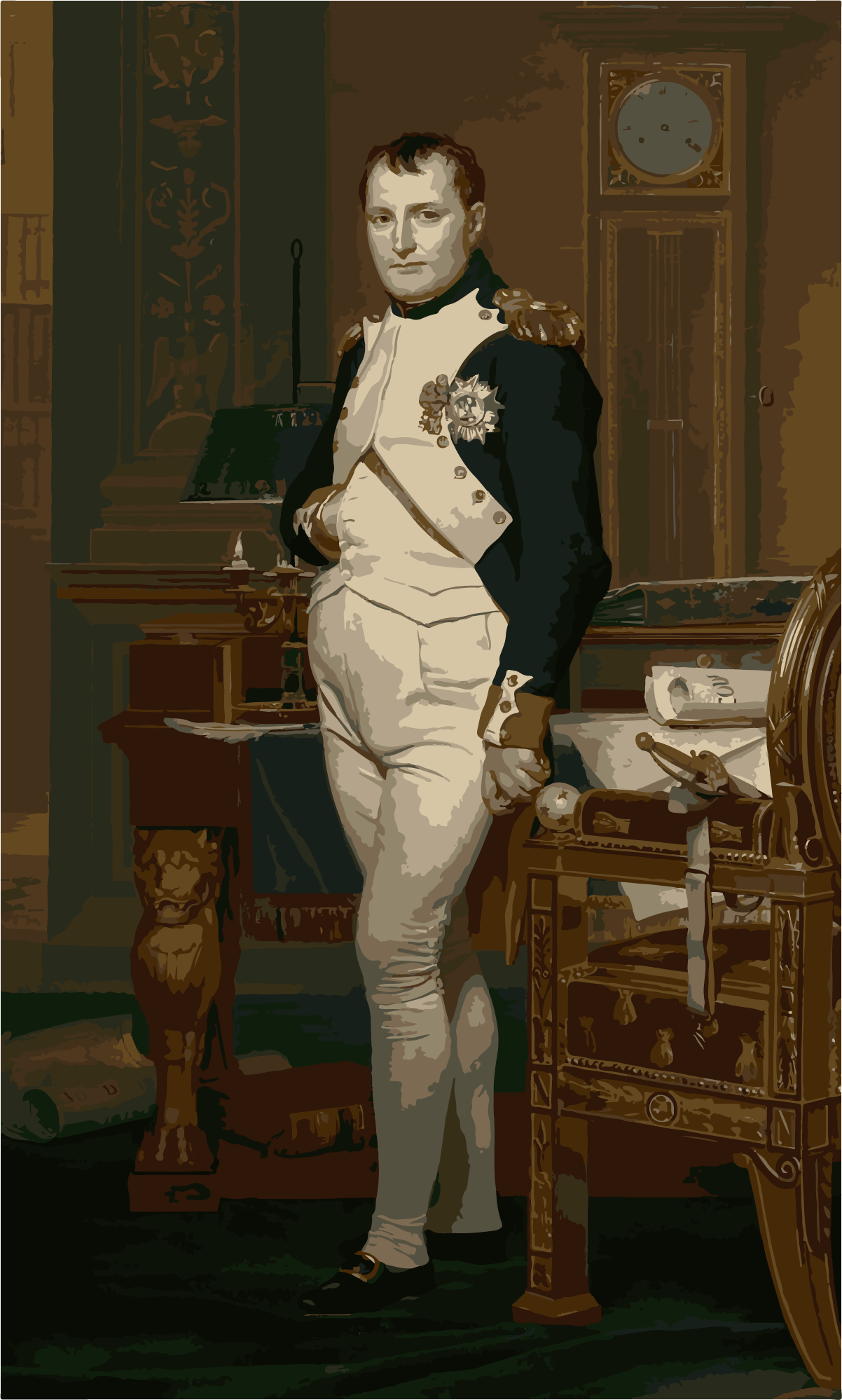
Napoleon Bonaparte understood that loyalty built on fear alone was fragile. Force can make people obey, but it cannot make them devoted. To secure lasting allegiance, he created the Légion d'Honneur, a prestigious order that rewarded bravery not only among generals, but also common soldiers. By making his men feel valued, he won their hearts. His troops didn’t fight because they had to, they fought because they wanted to.
Why Fear Always Backfires
Fear compels obedience in the short term, but it plants resentment for the long term. Resentment simmers, grows, and eventually explodes. The tighter the grip, the stronger the desire to break free. Leaders who rely on intimidation don’t create followers, they create future enemies.
The Power of Seduction
The alternative to fear is seduction. Instead of forcing obedience, inspire people to give it willingly. When individuals feel they act from free will, their commitment deepens.
The key is understanding what drives them:
Some crave recognition.
Others seek security.
Many are ruled by ego.
If you tap into their emotions (relieving pain, offering pleasure, or showing solidarity) you win loyalty without resistance.
Push them into despair, then offer relief, they’ll feel gratitude.
Let them expect hardship, then provide reward, they’ll cling to you.
Show sacrifice, even small, they’ll see you as one of them.
This is the architecture of lasting influence.
The Cost of Ignoring This Law
Contrast Napoleon’s success with Marie Antoinette’s failure. By the late 1700s, France was starving and drowning in debt, yet she withdrew into luxury. She spent fortunes on gowns and jewels while dismissing the suffering of her people. Even when revolution erupted, she ignored the chance to win hearts.
Her defiance ended in 1793 at the guillotine. She didn’t just lose her crown, she lost her life.
Five Fatal Mistakes That Destroy Loyalty
Living in a bubble, blind to the struggles of others.
Believing loyalty is owed, not earned.
Ignoring psychology and bulldozing through emotions.
Acting entitled, expecting the world to serve you.
Assuming persuasion is unnecessary.
Power Is Connection, Not Domination
Lasting influence is not about domination, it’s about connection. To strengthen your base:
Pay attention: read the psychology of those around you.
Tailor your words: speak to desires and fears.
Stay connected: the higher you rise, the more grounded you must remain.
Build broad support: a strong base shields you in crisis.
Convert enemies into allies: those who switch sides defend you the fiercest.
Use balance: alternate harshness with mercy, breaking and rebuilding as needed.
Always appeal to self-interest: people follow when they see what’s in it for them.
The Core Lesson
Power is not sustained by fear, but by devotion. Win hearts and minds, and people will follow you willingly. Lose touch, and no throne, crown, or title will save you.
Law 44. Disarm and Infuriate with the Mirror Effect
The Cold War Lesson
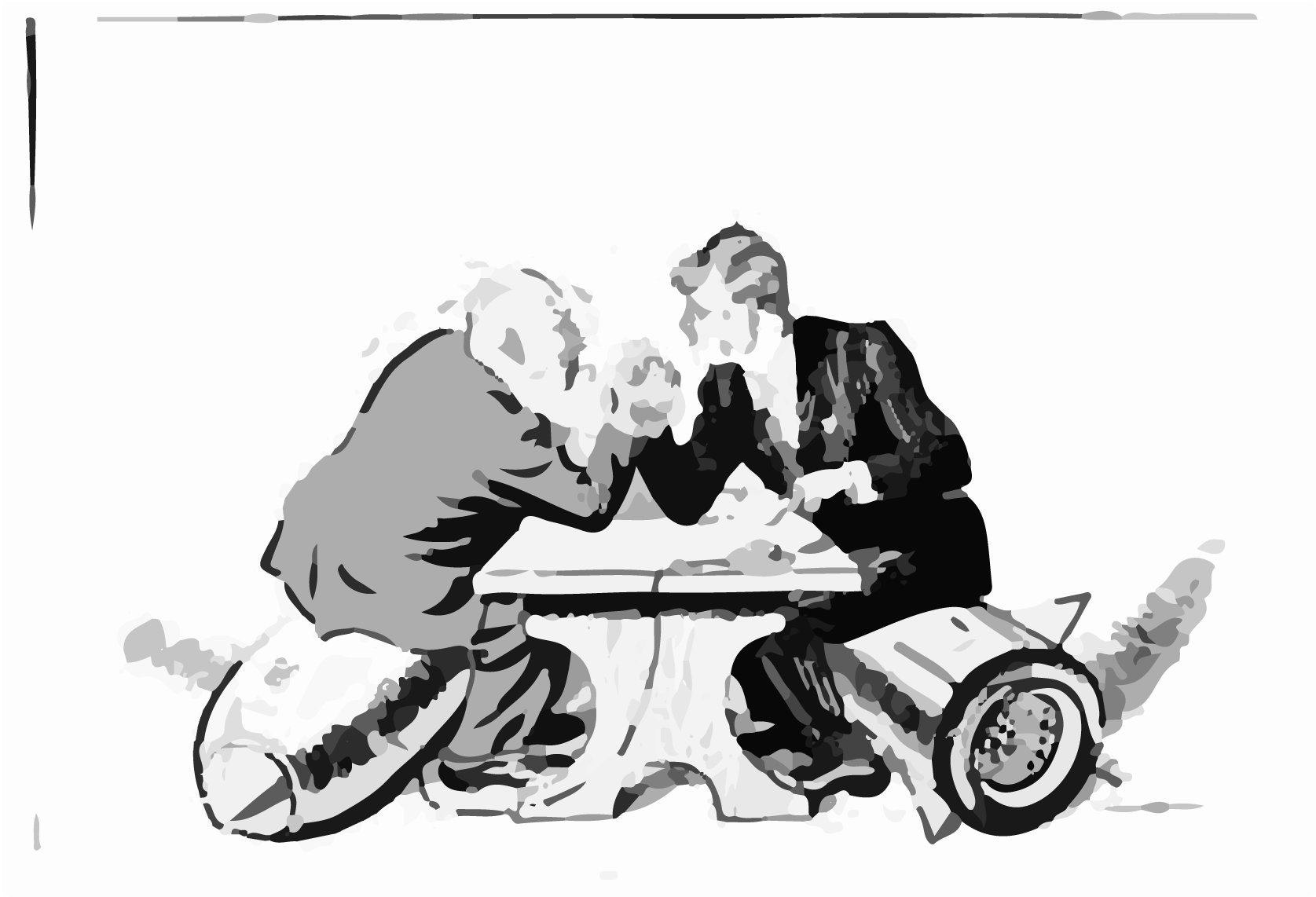
During the Cold War, the United States and the Soviet Union lived under Mutual Assured Destruction. Each side mirrored the other’s moves: build missiles, they build missiles; deploy troops, they deploy troops. That reflection kept both sides in check. Mirroring isn’t just a deterrent in geopolitics, it’s a psychological tool that confuses, flatters, and controls.
What the Mirror Effect Does
A mirror reflects reality, but reflection can be a weapon. When you copy another person’s actions, tone, or strategy, you do two things at once: you seduce and you unsettle. People relax when they see themselves reflected; opponents panic when they can’t distinguish your moves from their own. Use mirroring and you steer their emotions, choices, and reactions, without overt force.
Four Forms of the Mirror Effect
The Neutralizing Mirror: Disarm Your Enemy
Copy their tactics and tempo until they no longer know how to respond. When an opponent expects resistance and finds only their own strategy returned, they lose rhythm and initiative. Politicians, negotiators, and commanders use this to stall and frustrate, until the other side makes a mistake.The Narcissus Mirror: Win People Over
People love to see themselves. Match their language, posture, and concerns and they’ll feel understood and trusted. Salespeople, diplomats, and influencers win loyalty by reflecting values and desires back at their audience. Subtle mimicry builds rapport; familiarity breeds dependence.The Moral Mirror: Make Them Feel Their Own Faults
Instead of accusing someone of hypocrisy, let them taste it. If they ignore you, ignore them. If they gossip, allow them to be gossiped about. Experiencing their behavior from the other side forces self-recognition without your direct attack—often more effective than confrontation.The Hallucinatory Mirror: Manufacture an Alternate Reality
This is deliberate deception: create a convincing image of something that isn’t true. Inflatable tanks, false reports, or staged authority all work because people act on what they believe. Control perception, and you control behavior—sometimes without anyone realizing they were fooled.
Why the Mirror Works
It builds trust. People feel safe with what resembles themselves.
It causes confusion. Opponents faced with their own tactics lose composure.
It buys time. By reflecting rather than reacting, you keep initiative and force others to reveal themselves.
It multiplies impact. From seduction to sabotage, mirroring scales across domains.
When to Use It and When Not To
Mirror when you need to disarm, seduce, or buy time. Avoid it against those who notice patterns easily; obvious mimicry becomes mockery. Also, don’t use the hallucinatory mirror where exposure creates martyrdom, if the illusion collapses badly, you’ll lose more than you gained.
The Core Lesson
Reflection can be a weapon. By mirroring others (calmly, subtly, and strategically) you make them reveal themselves, surrender influence, or fall into their own traps. Disarm with their reflection; infuriate with their image and let them do your work for you.
Law 45. Preach the Need for Change, but Never Reform Too Much at Once
The Tsar Alexander II Lesson
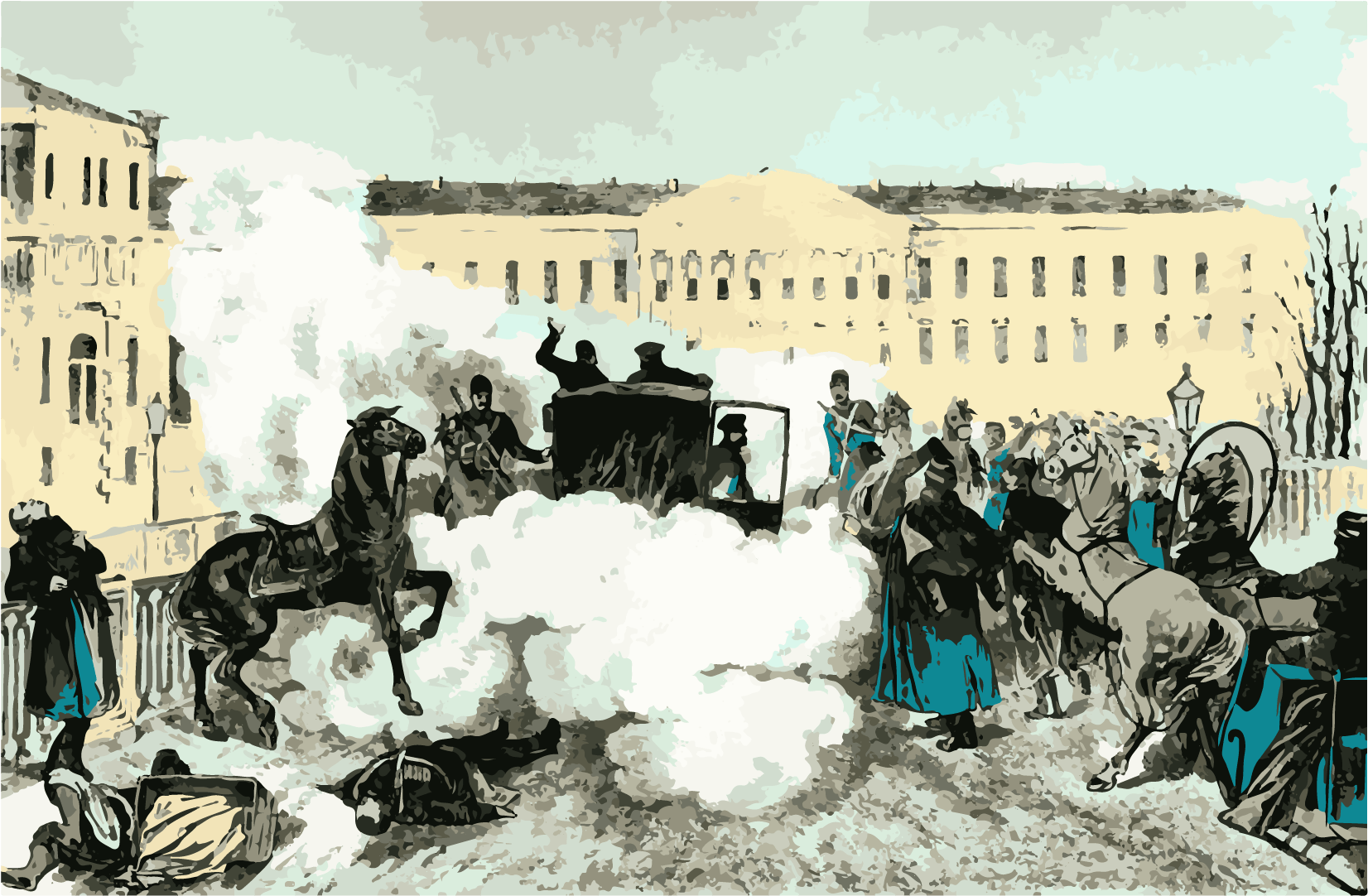
In 1861, Tsar Alexander II of Russia abolished serfdom, ending centuries of servitude. It was meant to modernize the empire, but instead it unleashed chaos. Peasants, unprepared for freedom, floundered. Landowners resisted the loss of power. Radicals claimed the reforms didn’t go far enough, while conservatives argued they went too far. Russia became trapped between old and new, order and upheaval. In the end, Alexander II was assassinated, killed not for refusing change, but for pushing it too suddenly.
The Illusion of Change
People cry out for progress, but when change comes too fast, they panic. They fear instability more than stagnation. History proves it:
The French Revolution began with freedom but spiraled into the Reign of Terror.
The Soviet Union promised equality but collapsed into dictatorship.
Sudden change feels like chaos, and chaos breeds resistance. If you want reforms to last, they must look like a continuation of the past, not a break from it.
Why People Resist
What people fight isn’t change itself, it’s loss. When familiar traditions, symbols, or comforts vanish overnight, they feel robbed. But if new reforms are framed as refinements rather than revolutions, resistance fades.
How to Introduce Change Without Backlash
Tie Change to Tradition: Keep familiar symbols, rituals, and titles. Replace what must be removed with something equally recognizable.
Make Change Feel Inevitable: Introduce it gradually, in small steps that seem natural rather than radical.
Control the Narrative: Frame reforms as preservation, not disruption. People accept evolution more than revolution.
Disguise Big Changes as Small: Present major reforms as minor adjustments so they’re easier to digest.
Use Nostalgia as a Shield: Preach a return to “the good old days,” even if you’re quietly building something new.
Anticipate Resistance: Every reform creates backlash. Plan for it, neutralize it early, and never assume momentum will protect you.
The Core Lesson
Change is inevitable, but survival depends on how it’s delivered. Move too slowly, and you stagnate. Move too fast, and you invite rebellion. The true art of reform is disguise: make people feel they’re holding onto the past, even as you lead them into the future.
Law 46. Never Appear Too Perfect
The Marie Antoinette Lesson

Marie Antoinette embodied wealth, elegance, and extravagance, but at the wrong time. While France starved, she lived in luxury, becoming a symbol of everything wrong with the monarchy. To the people, she wasn’t just a queen, she was the personification of inequality. Admiration turned to hatred, and in 1793, she paid with her life at the guillotine. Her “perfection” didn’t protect her, it destroyed her.
Why Perfection Breeds Envy
We assume people admire perfection. In truth, they envy it. And envy is more dangerous than admiration.
When others see you as flawless, they compare themselves against you. When they fall short, they don’t blame themselves, they blame you. That envy simmers in silence, morphing into resentment, sabotage, or betrayal.
Philosopher Søren Kierkegaard called envy “unhappy admiration.” It doesn’t always shout, it hides behind masks:
Excessive praise: Compliments that secretly hope you’ll stumble.
Harsh criticism or slander: Attacks framed as “constructive.”
Cold withdrawal: Once-supportive allies turning distant or passive-aggressive.
The higher you rise, the more envy you attract, sometimes from those closest to you.
How to Avoid Becoming a Target of Envy
Appear More Human: Share small flaws, laugh at yourself, and avoid invincibility. Relatability disarms envy.
Don’t Flaunt Power: Wealth and status should be understated. The more you show off, the more you remind others of what they lack.
Defer Publicly: Give others credit and let them shine. If you always dominate, they’ll search for ways to cut you down.
Frame Success as a Burden: Present victories as costly or stressful. Sympathy replaces resentment.
Give People Small Wins: Let others taste victory. Shared success keeps envy at bay.
Control the Narrative: Effortless perfection breeds envy; visible struggle earns respect.
When Envy Strikes Anyway
Even with caution, envy is unavoidable. The key is to manage it:
Read the signs: Backhanded praise, sarcasm, or subtle undermining mean envy is at work.
Use it as fuel: Resentment often means you’re doing something worth envying.
Walk away when needed: If envy escalates into hostility, distance yourself before it destroys you.
The Core Lesson
Power doesn’t come from perfection, it comes from relatability. Too much brilliance breeds envy, and envy is a silent assassin. Better to be admired for your humanity than hated for your flawlessness.
Law 47. Do Not Go Past the Mark You Aimed For; In Victory, Learn When to Stop
The Napoleon Lesson
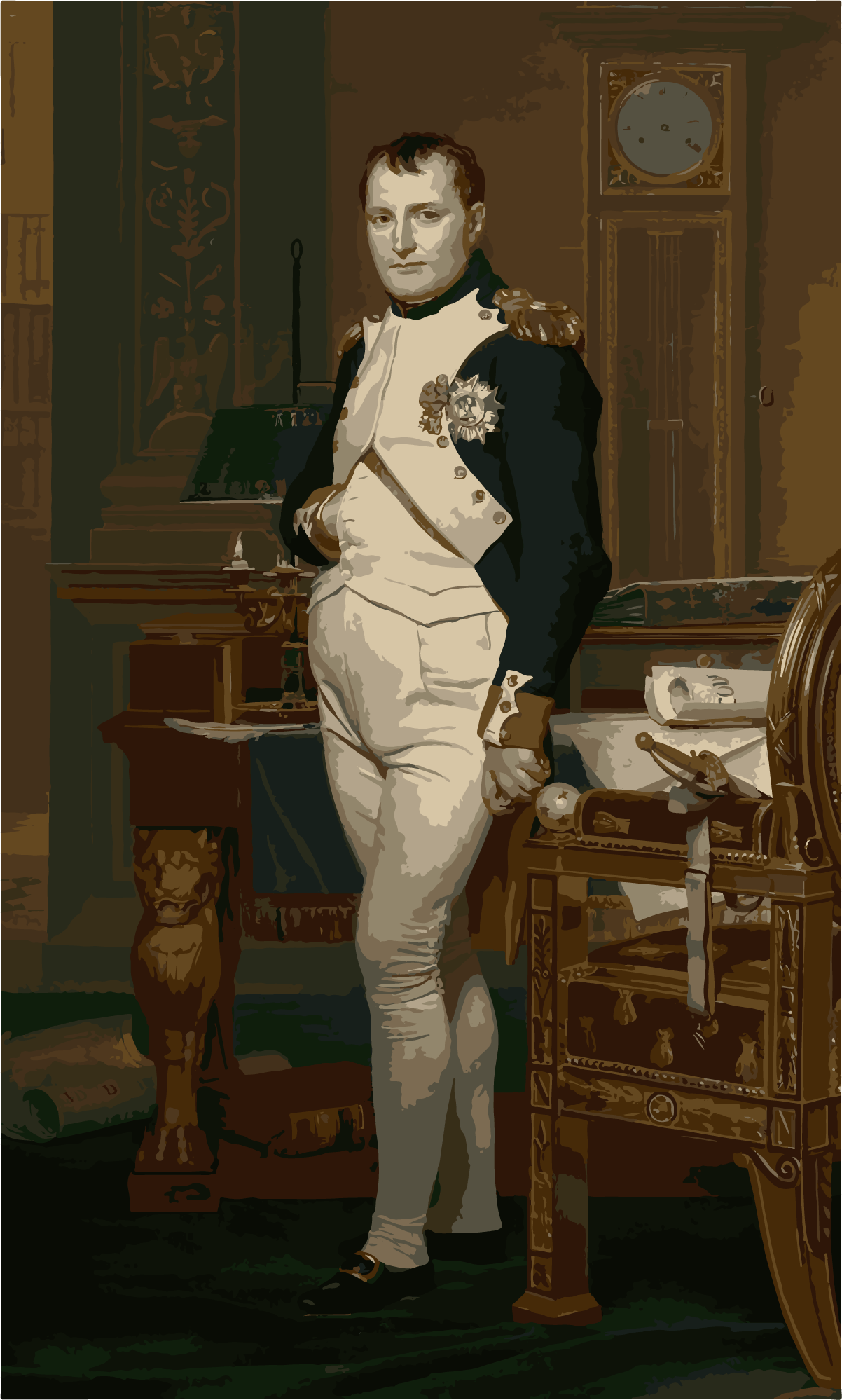
By 1812, Napoleon Bonaparte ruled much of Europe. But victory wasn’t enough, he wanted more. So he invaded Russia with over 600,000 men, expecting another swift triumph. At first, success came easily. But as he pressed further, the Russians retreated, burning everything behind them. Winter arrived, supplies vanished, and Napoleon’s army starved. When he finally retreated, it was too late. His greatest victory turned into the beginning of his downfall, not because he failed, but because he didn’t stop winning.
The Most Dangerous Moment: Success Itself
Defeat forces caution. Success tempts recklessness. Victory intoxicates, clouding judgment and feeding arrogance. You believe momentum will carry you forward forever, but momentum is an illusion. Circumstances change, and yesterday’s strategy doesn’t guarantee tomorrow’s win.
Good luck is often more dangerous than bad luck. Failure sharpens your focus. Success lulls you to sleep. Convinced you’re untouchable, you push too far and stumble into ruin.
How to Turn Victory Into Lasting Power
Set a Clear Goal: Then Stop
Define the target before you act. Once you achieve it, resist the urge to keep pushing “just because you can.”Acknowledge the Role of Luck
Not every win is pure strategy. Circumstance matters. Don’t expect the same moves to work forever.Consolidate Before Expanding
Secure your gains. A weak foundation collapses under its own weight.Ignore the Crowd’s Excitement
After victory, allies and followers will urge you to chase more. Their energy is not strategy. Stay in control.Be Precise, Not Reckless
Crush enemies so they cannot rise again, but avoid unnecessary battles that create new ones.Practice Caution, Not Hesitation
Think before you move, but don’t freeze. Strategy is careful action, not paralysis.Forget the Myth of Momentum
Success is not automatic. It must be renewed through adaptation and awareness.Stay Disciplined After Winning
Victory breeds arrogance. Guard against it. Stay sharp, stay humble, stay strategic.
The Core Lesson
The moment of triumph is the moment of greatest danger. Don’t let success blind you. Victory is only real if you know when to stop.
Law 48. Assume Formlessness
The Bruce Lee Lesson

Bruce Lee famously said: “Be like water.” He believed the strongest fighters weren’t those with rigid styles, but those who could adapt to any situation. His philosophy went beyond martial arts, it was about life and power itself. The moment you become rigid, you become predictable. And what’s predictable can be destroyed. But if you remain fluid, adjusting constantly, you become untouchable.
The Power of Formlessness
History proves one truth: rigidity leads to downfall.
Businesses that resist innovation collapse.
Empires that cling to tradition fall.
Leaders who stick to old strategies are outmaneuvered.
When IBM dominated mid-20th century computing, it focused only on mainframes. When personal computers emerged, IBM resisted. Microsoft and Apple seized the future, and by the time IBM adapted, its dominance was gone.
The world is in constant motion. Refuse to change, and you will be broken. Embrace change, and you control the game.
How to Master Formlessness
Take Nothing Personally: Emotional reactions expose weaknesses. Like water, absorb the blow, flow around it, and return stronger in another form.
Stay Fluid, Not Fixed: Systems, beliefs, and routines are useful—but never permanent. Be ready to abandon what no longer serves you.
Be Like Vapor: The unpredictable cannot be struck. Shift constantly so enemies waste energy chasing shadows, then strike with precision when they are weakest.
Accept Chaos: Stability is an illusion. Markets crash, alliances shift, plans collapse. Don’t cling to false order—flow with uncertainty, and you’ll never be caught off guard.
Disappear When Necessary: At times, the strongest move is to vanish, leaving enemies nothing to attack.
Strike With Precision: Formlessness isn’t drifting aimlessly. When you do take shape, do so suddenly, with speed and force that no one can prepare for.
What Forlessness Is Not
It is not passivity. Drifting aimlessly is weakness.
It is not defensiveness. Reacting emotionally gives enemies a fixed point to strike.
The Core Lesson
Power comes from movement, not position. Stay fluid, unreadable, and ever-changing. The rigid are predictable and fall. The formless cannot be grasped and ultimately, cannot be defeated.